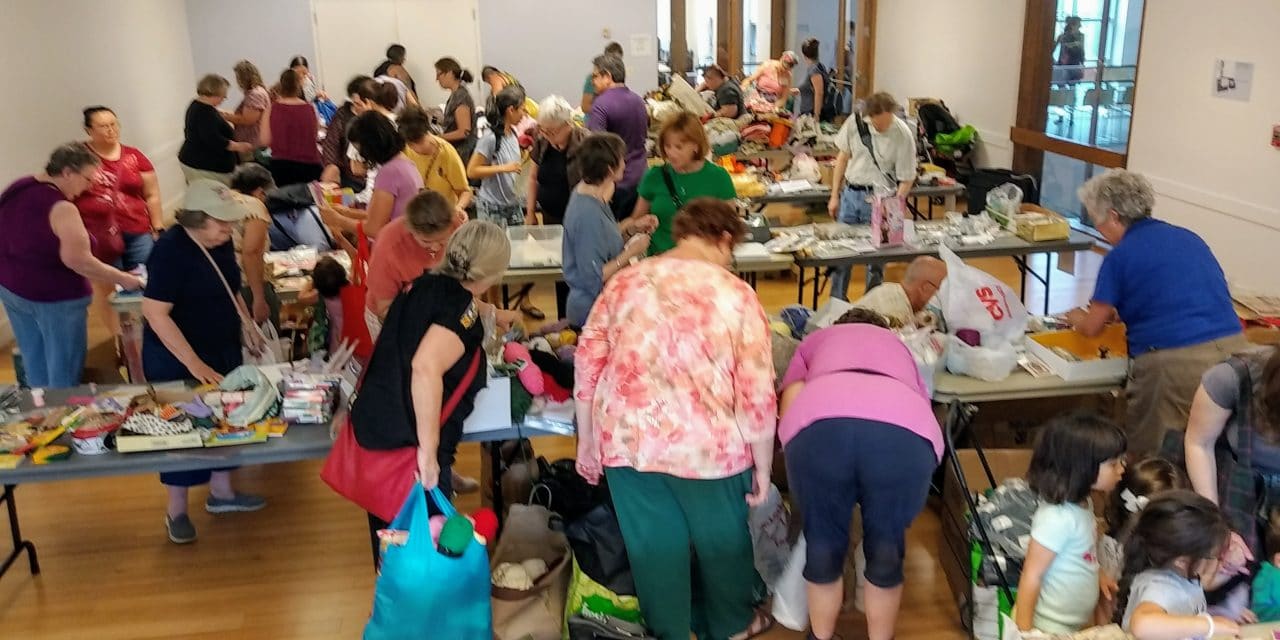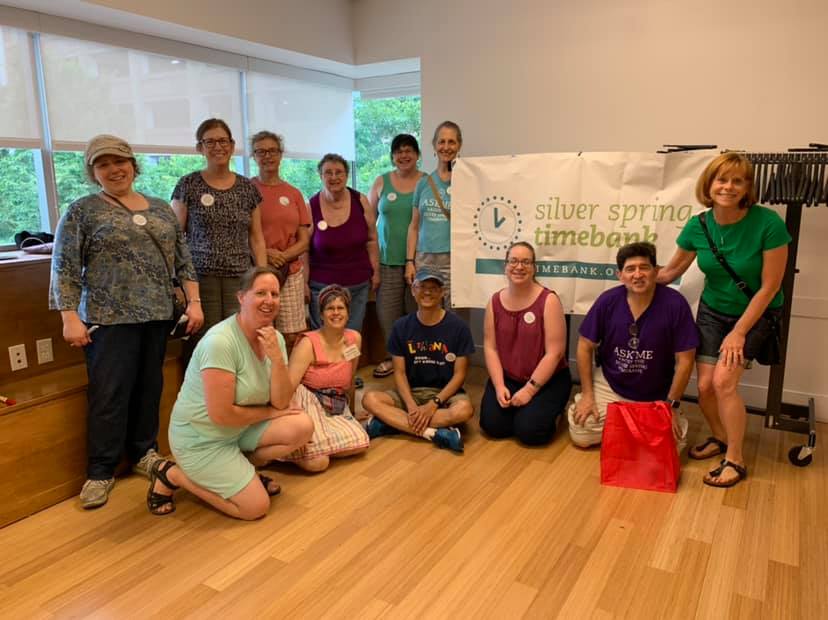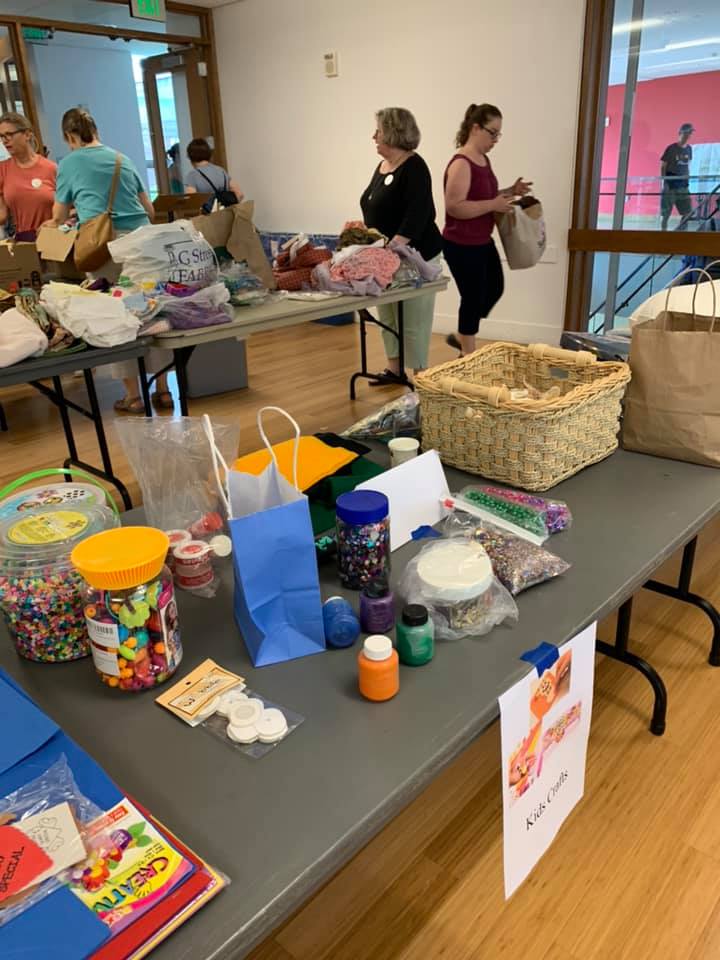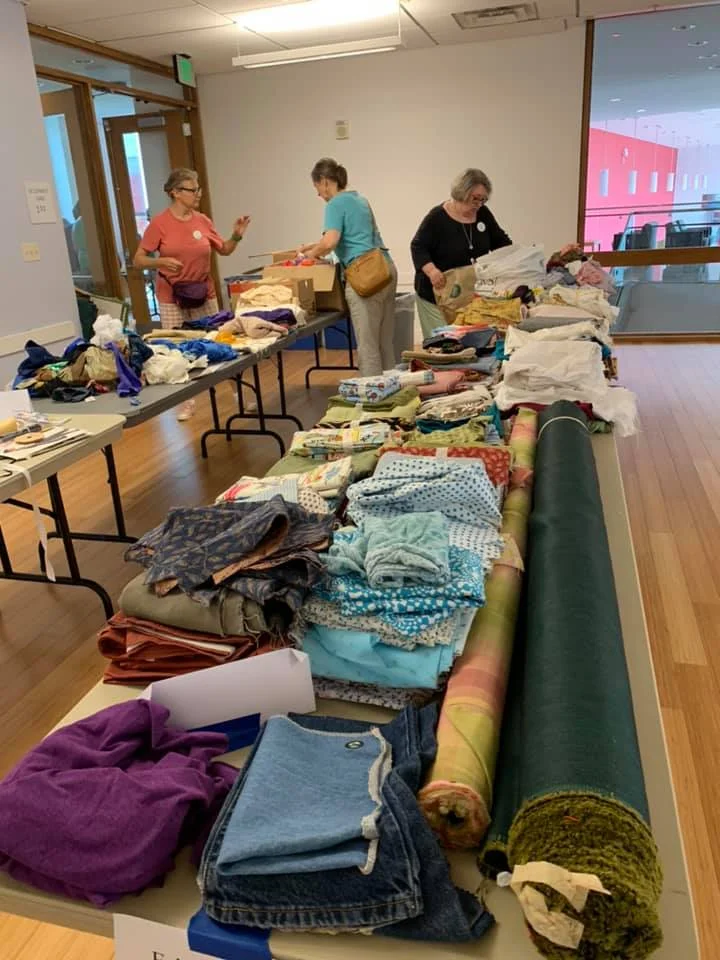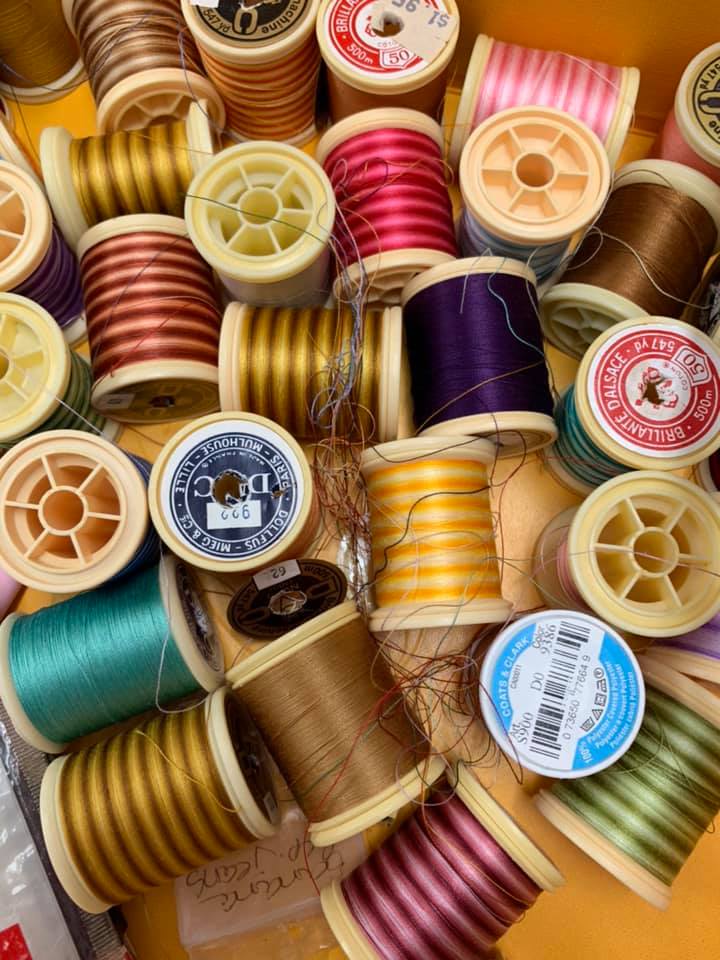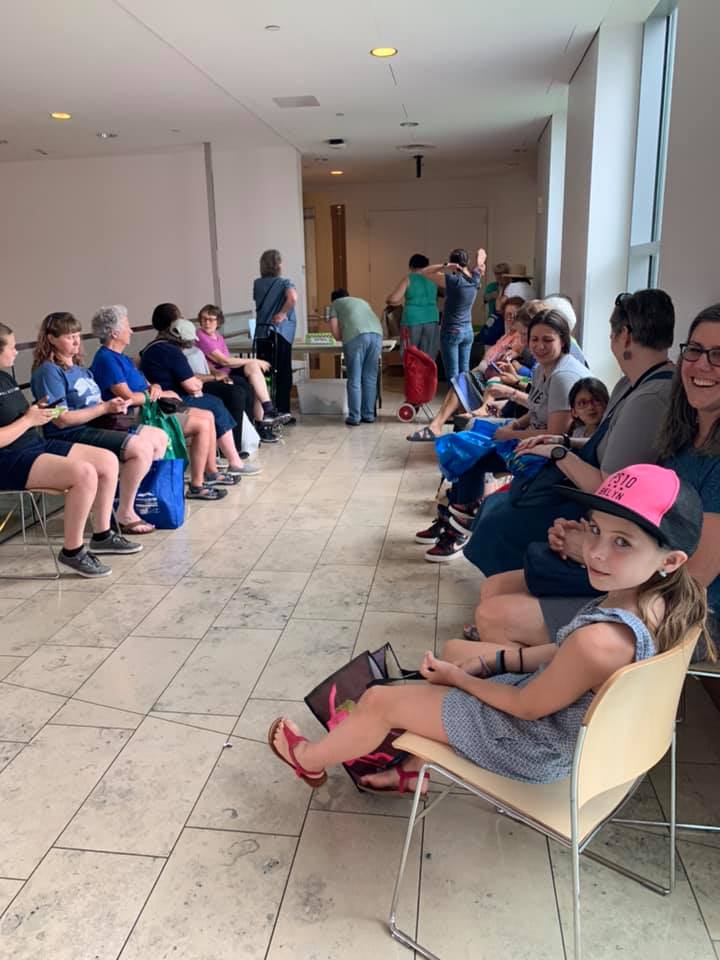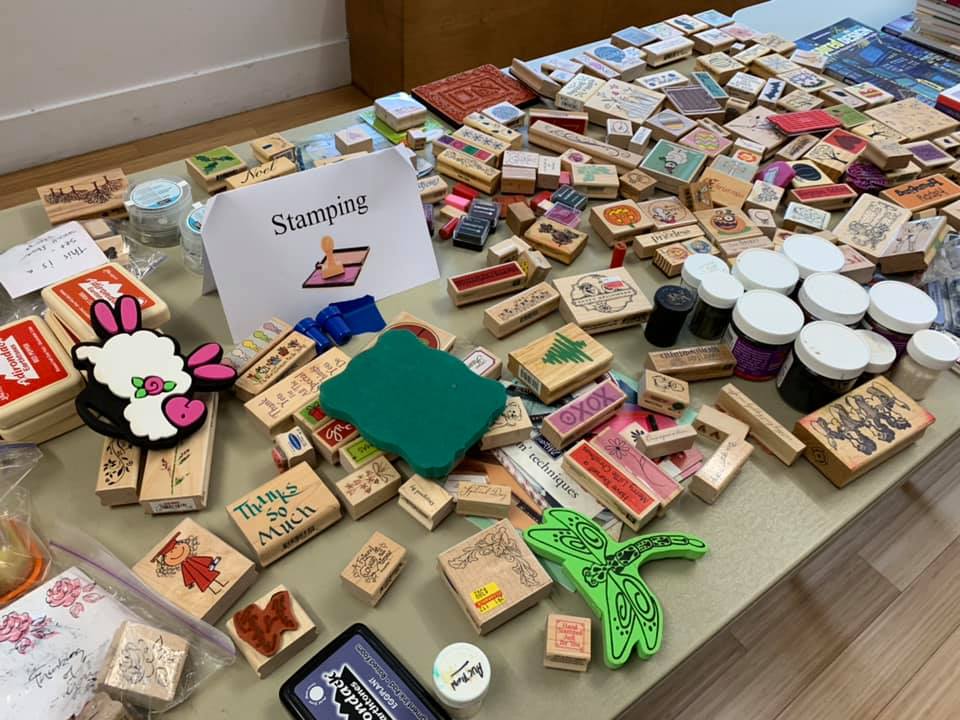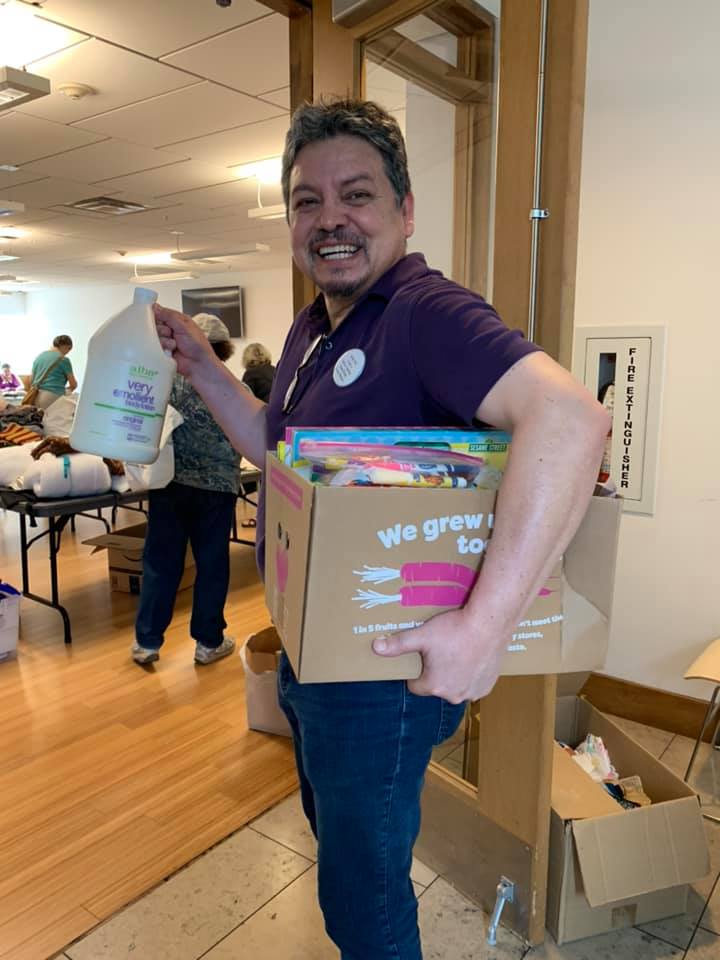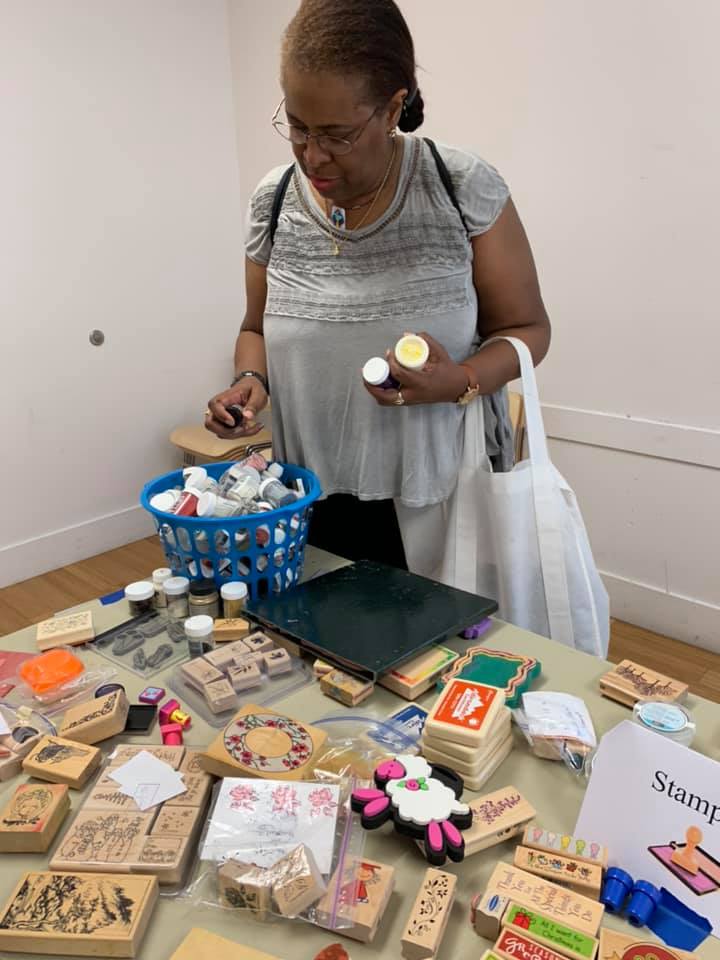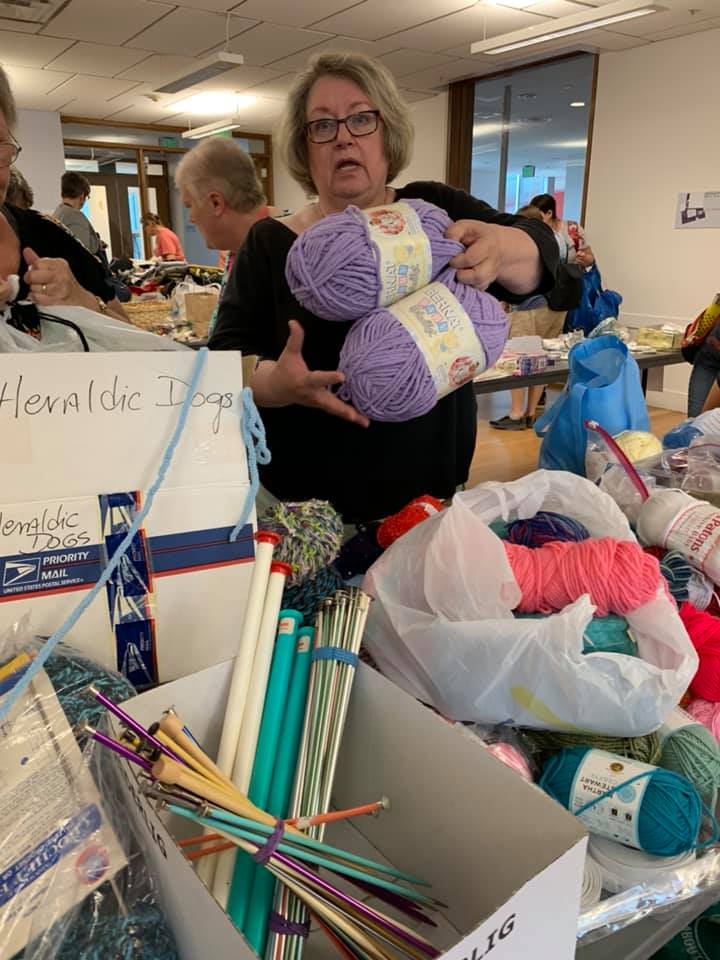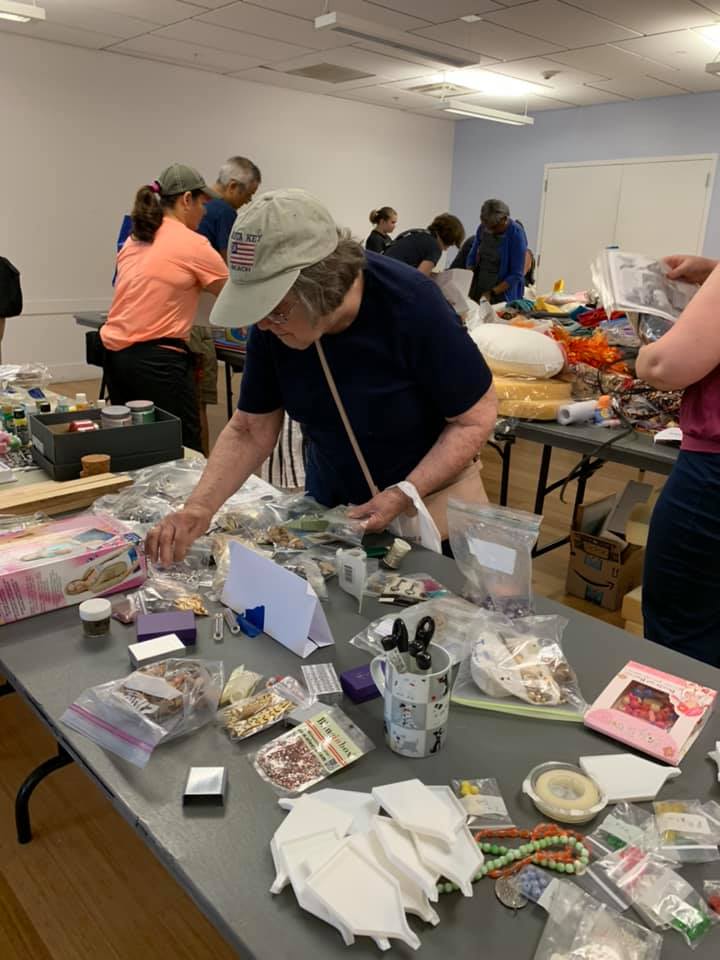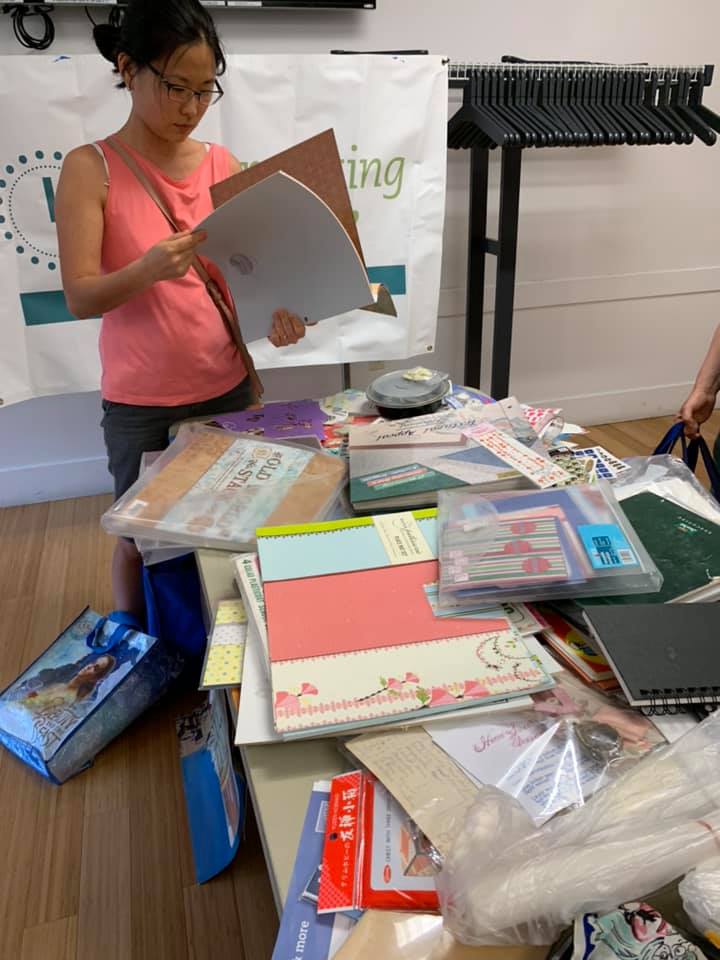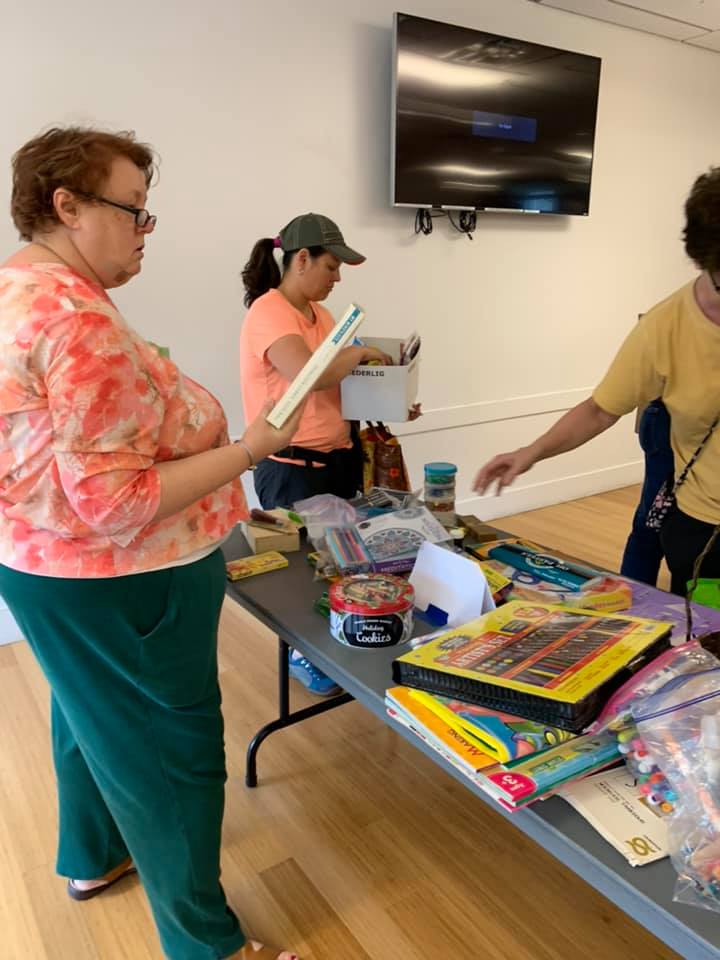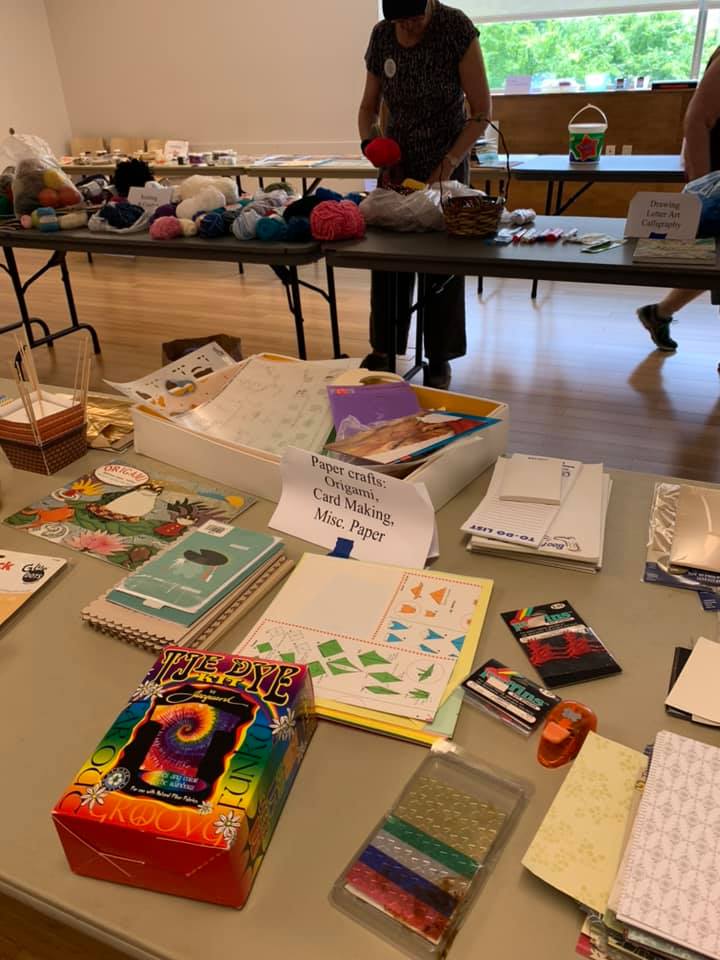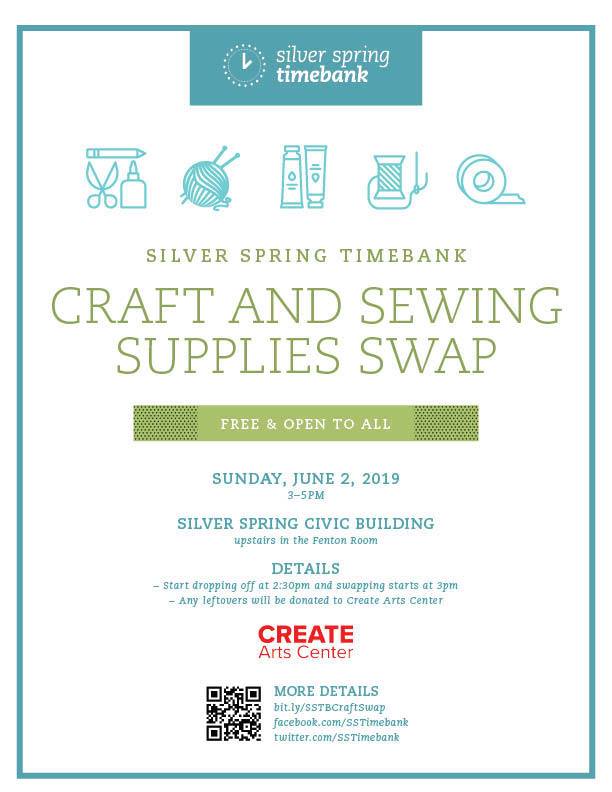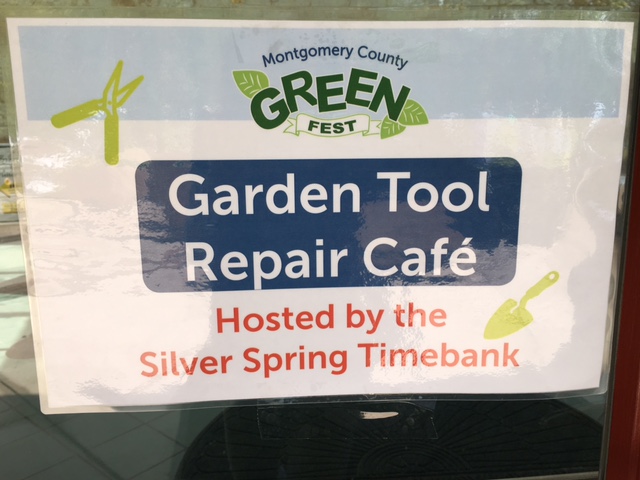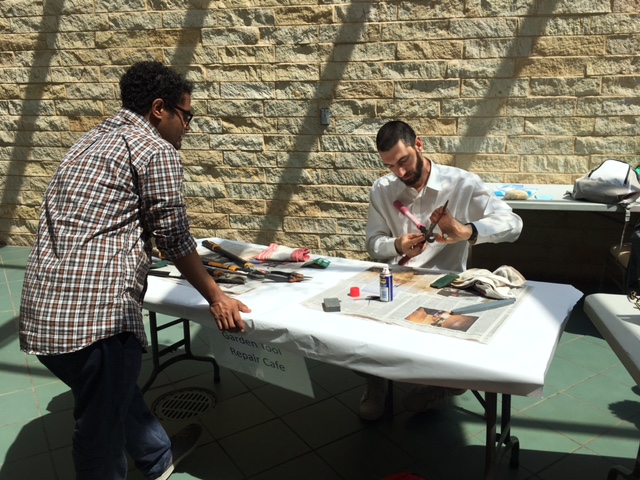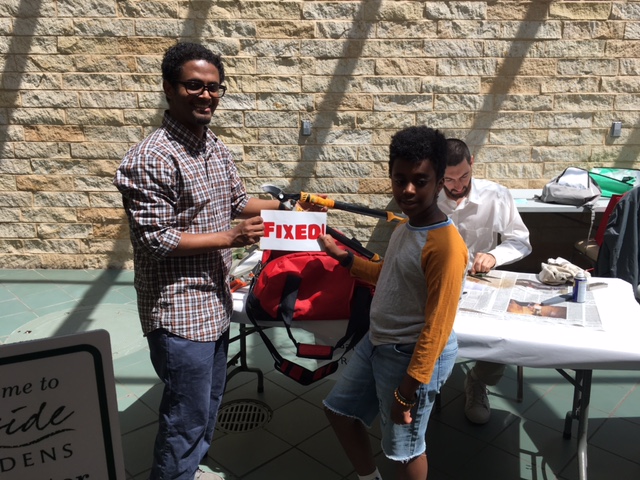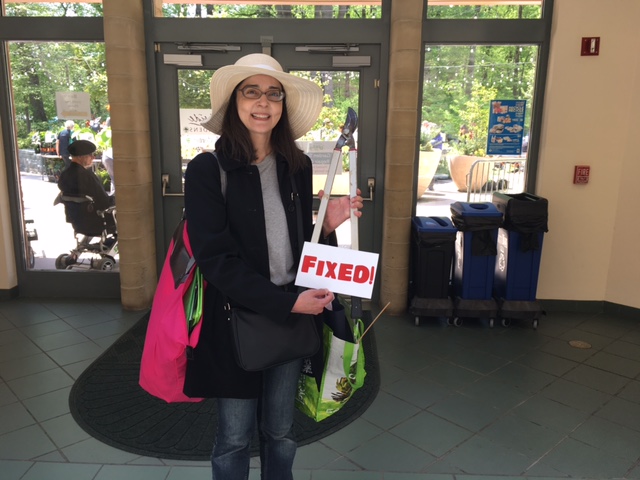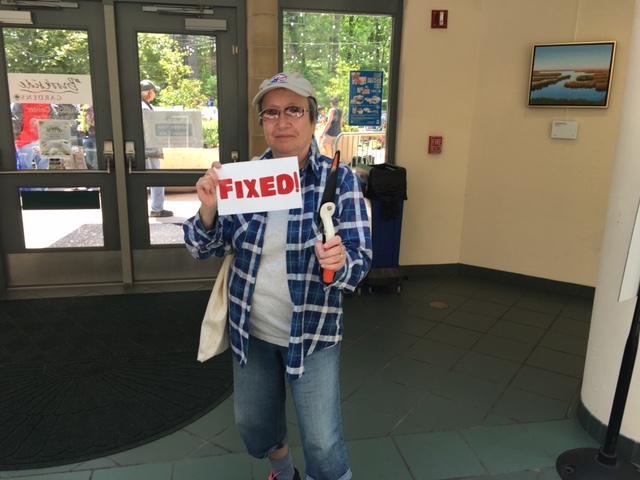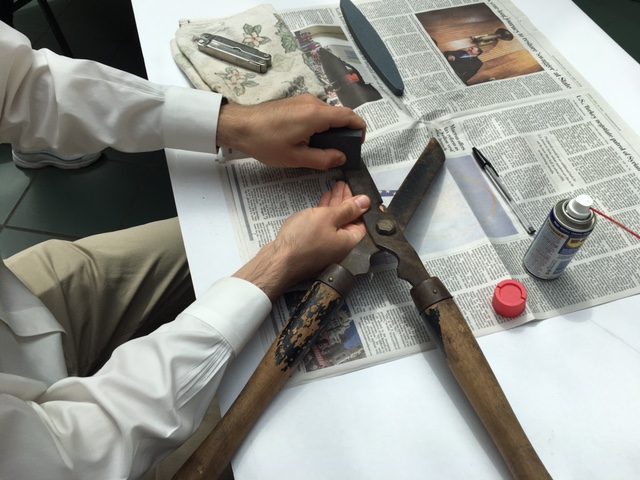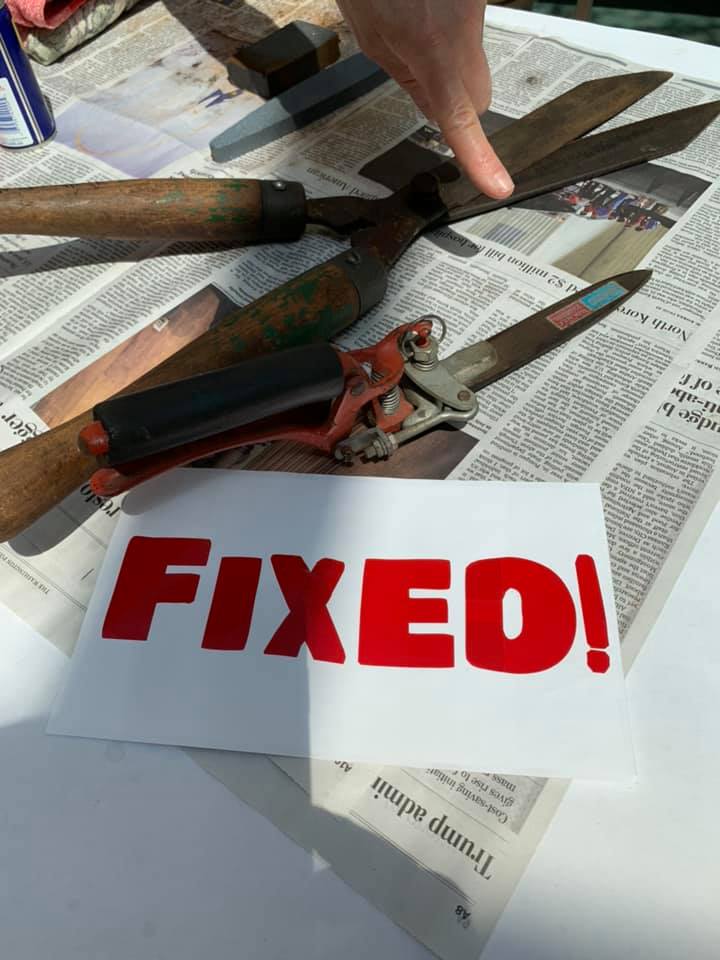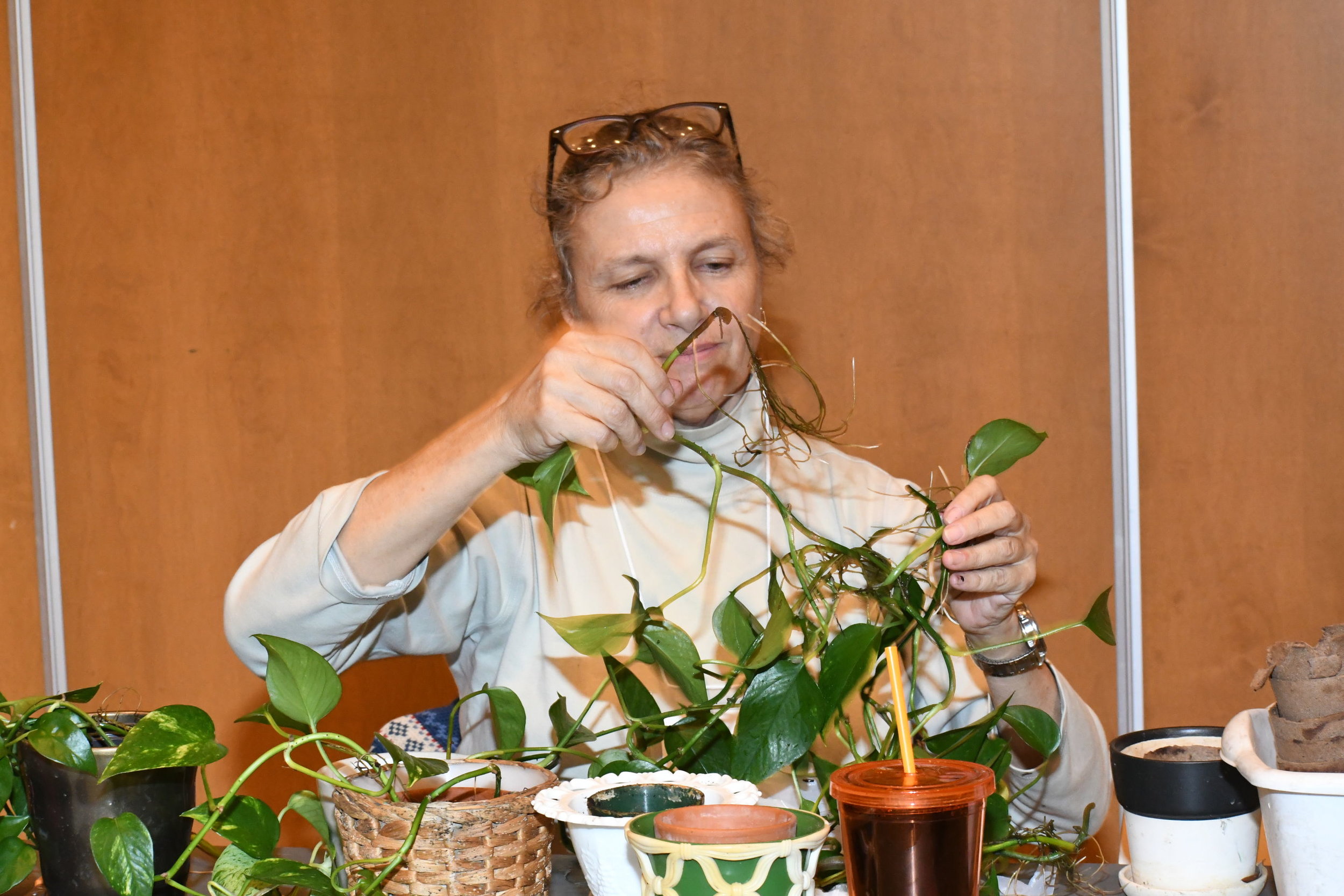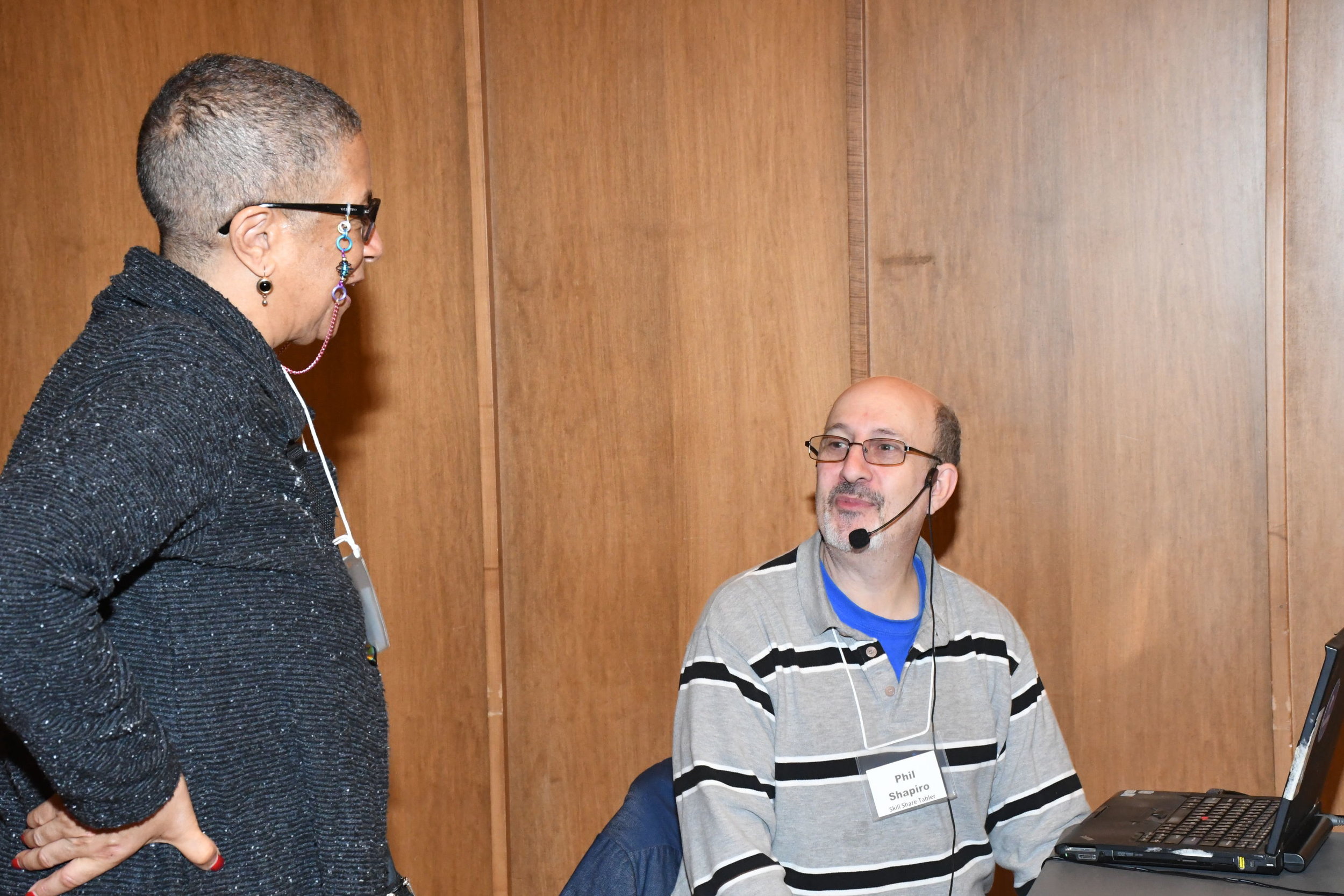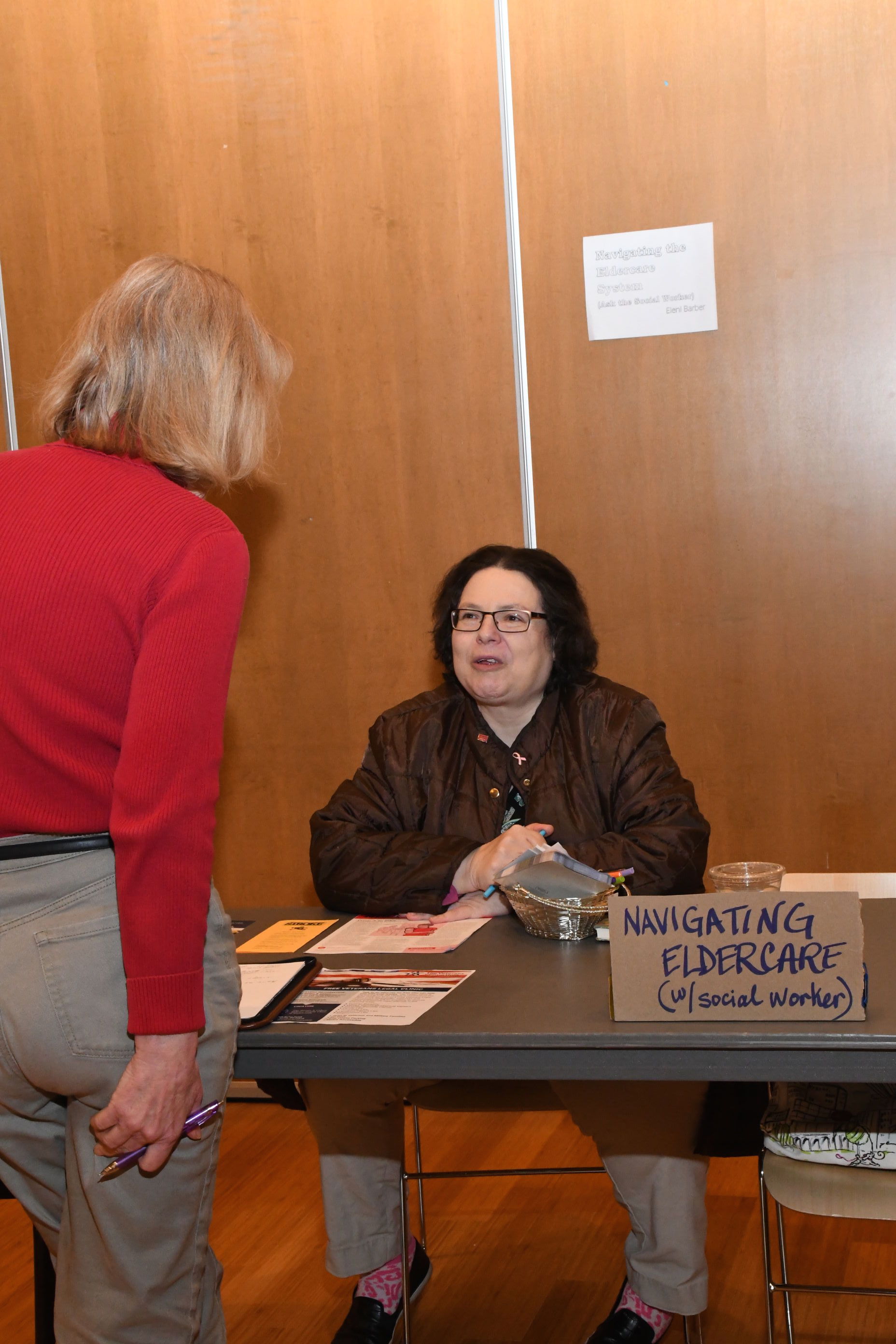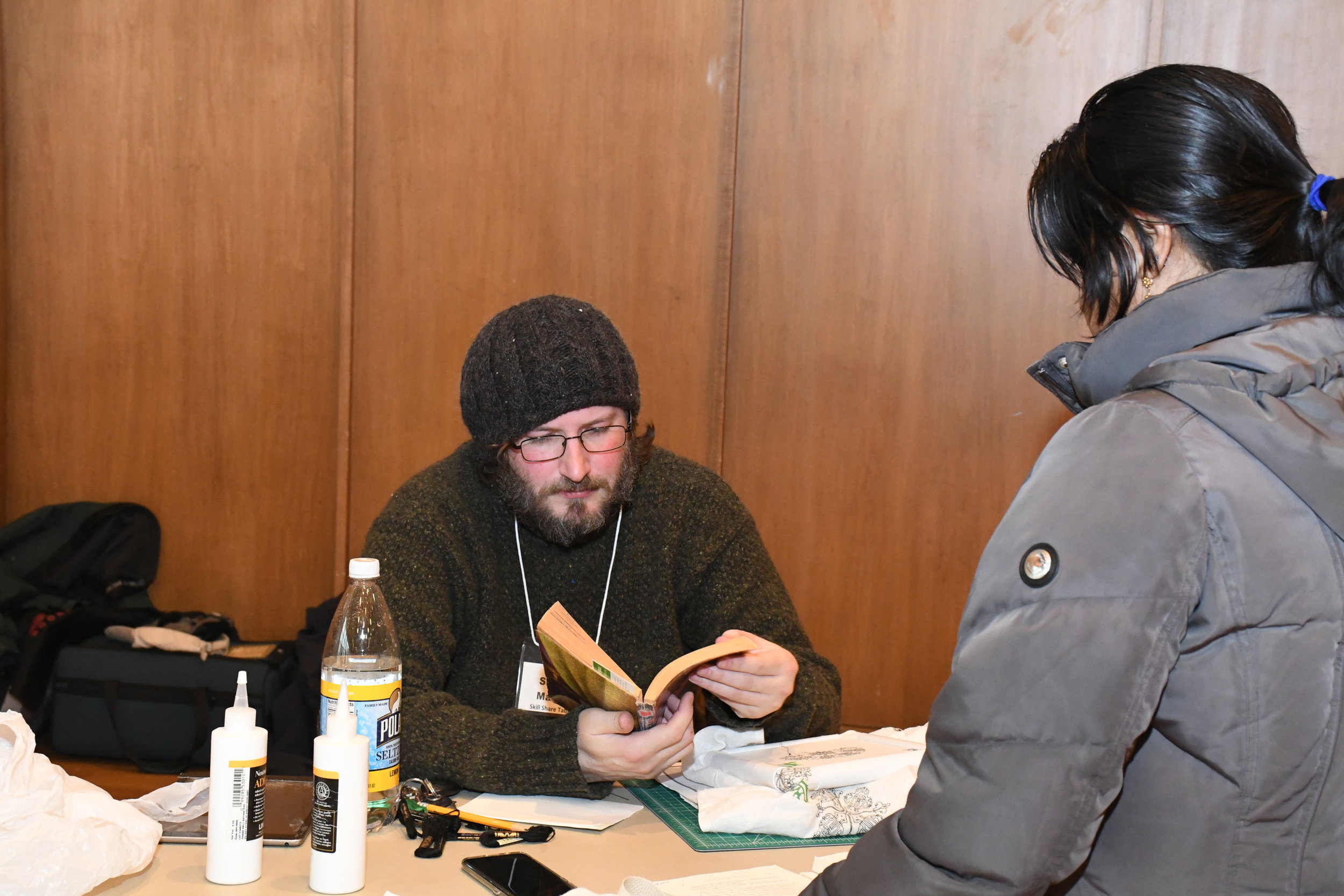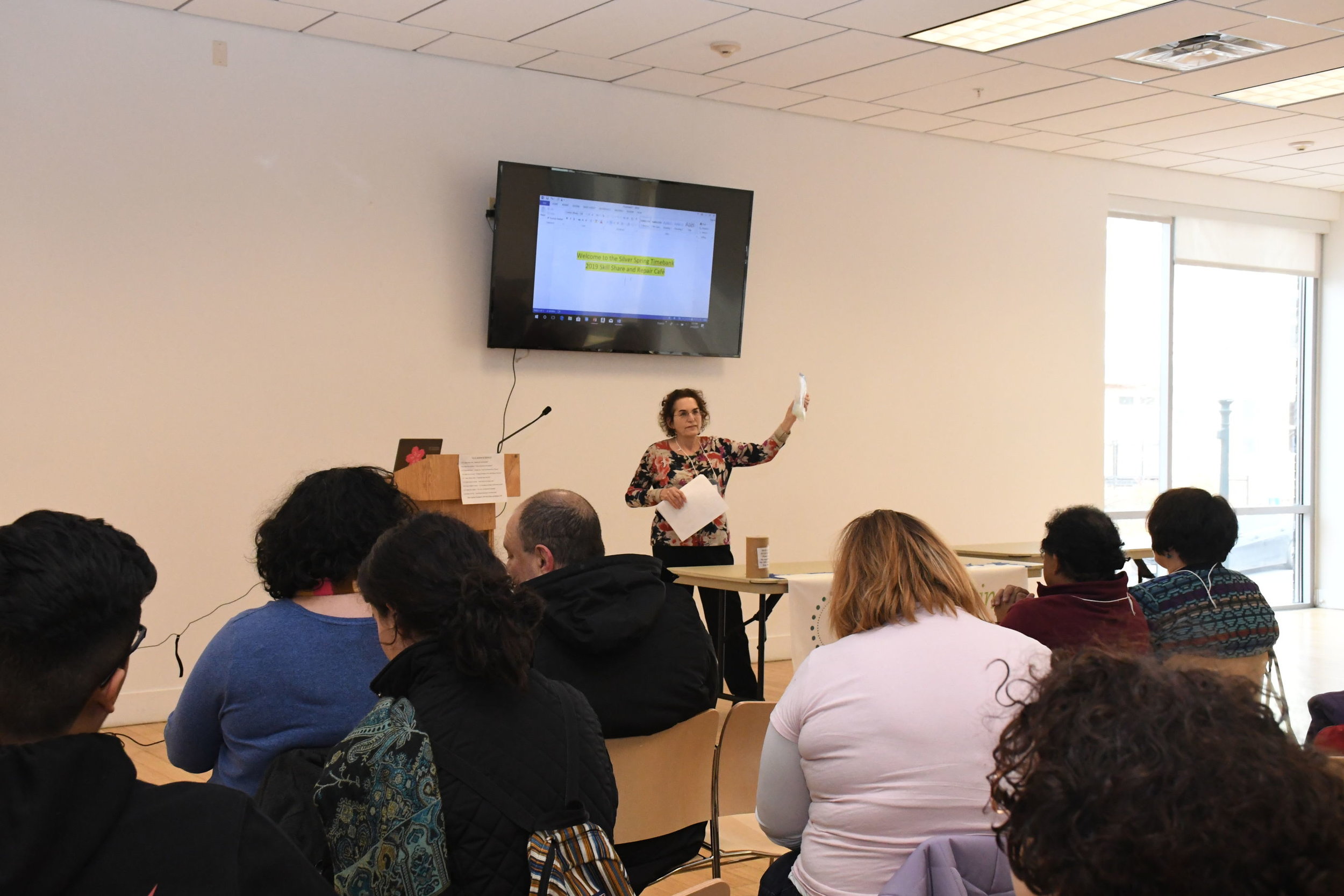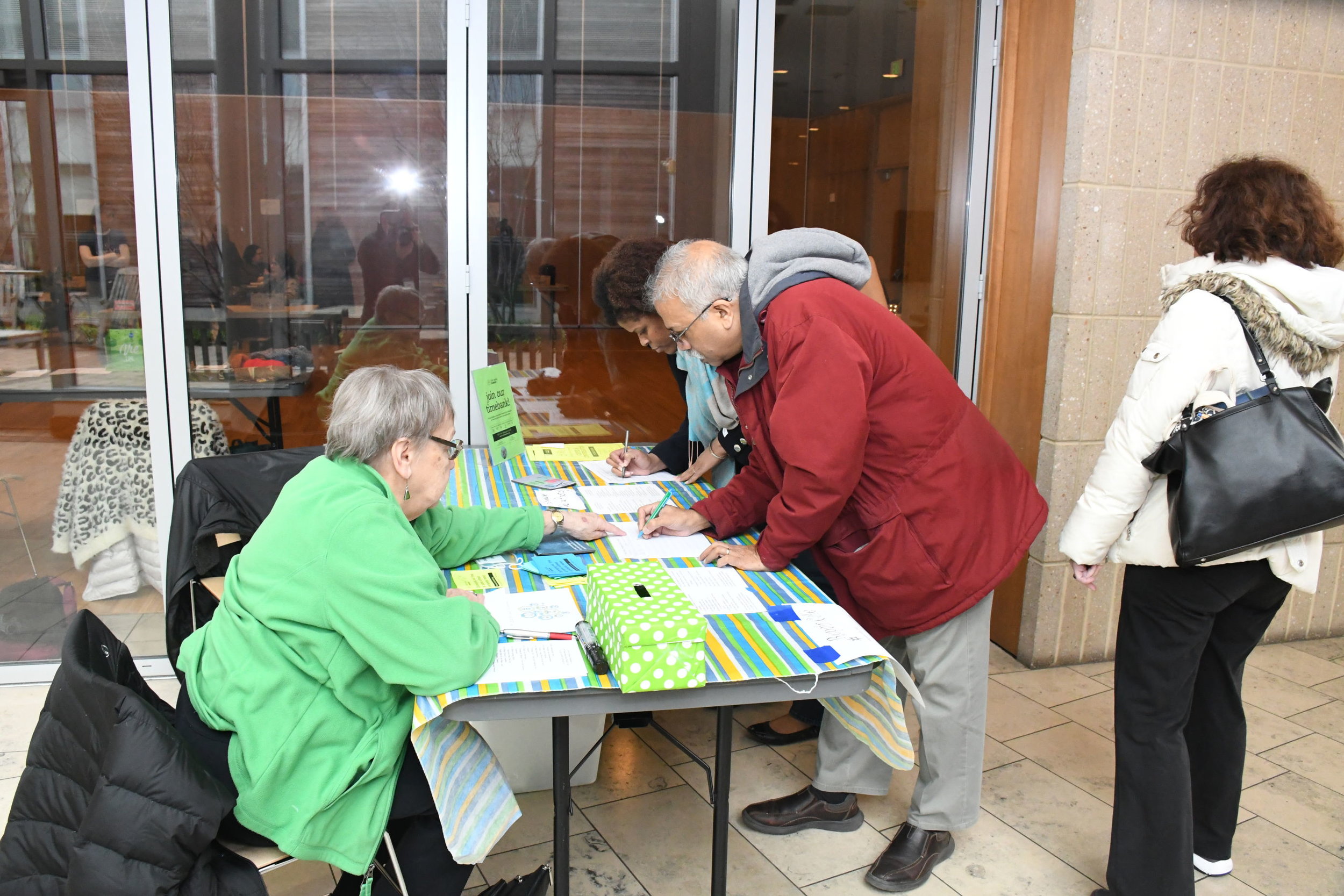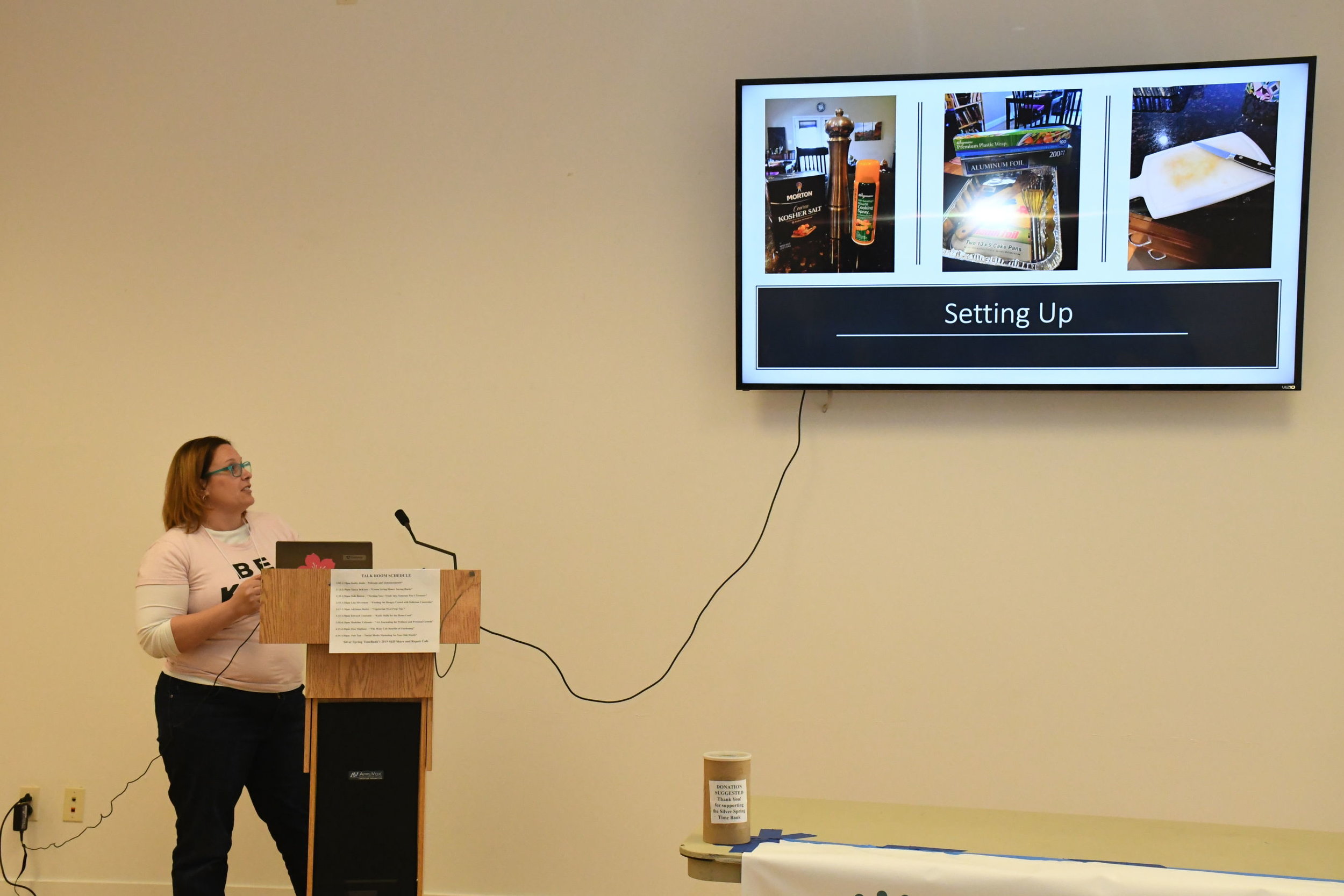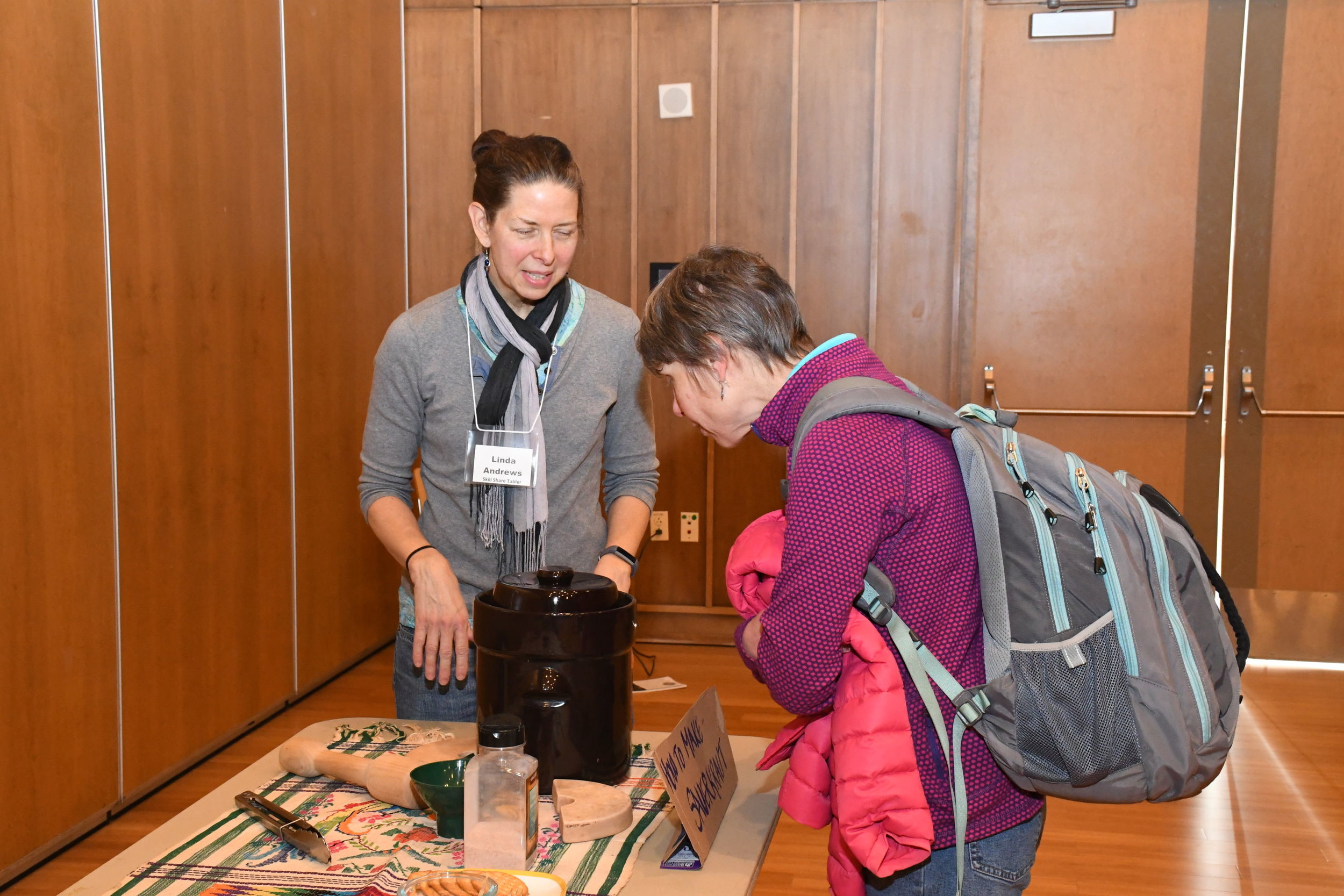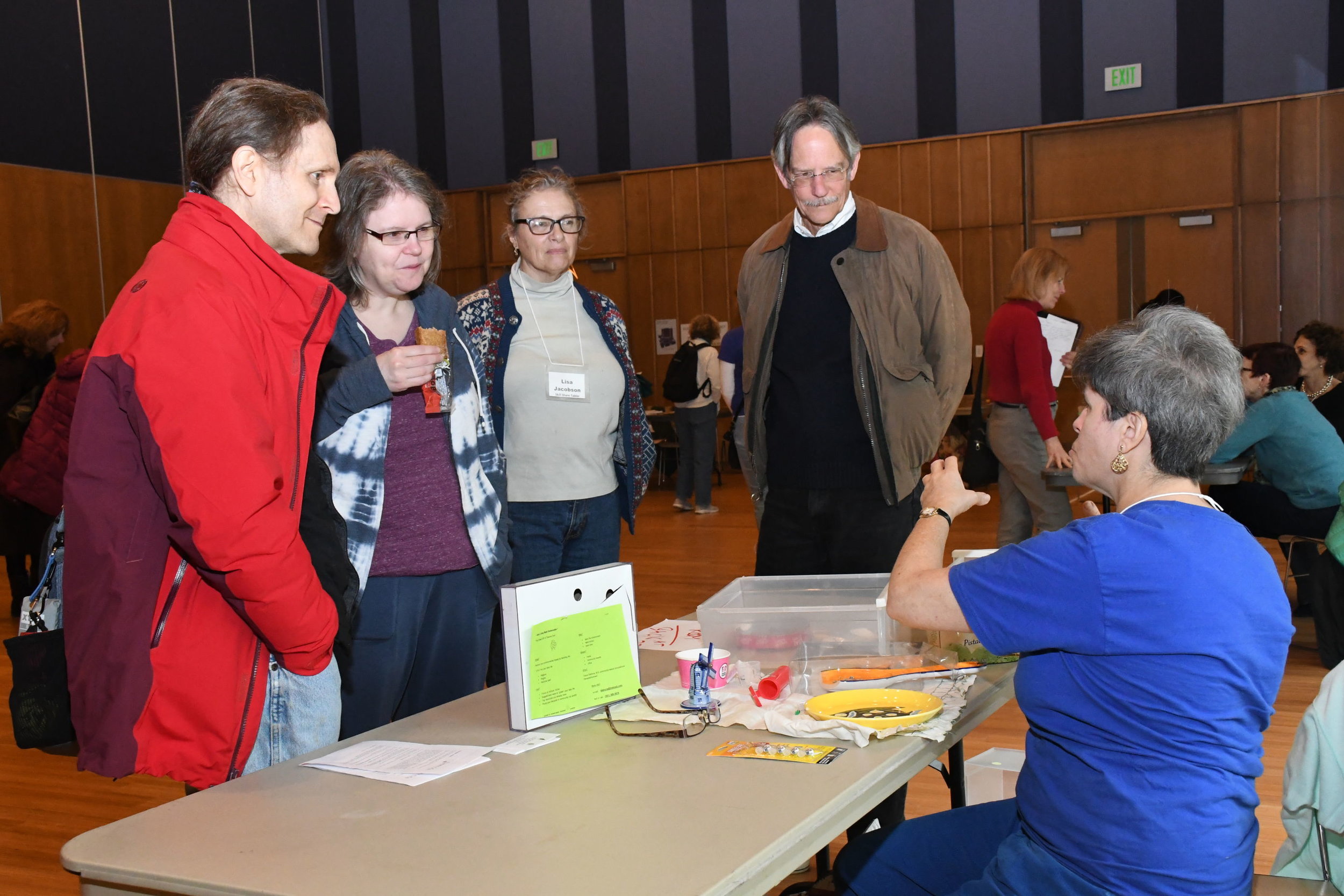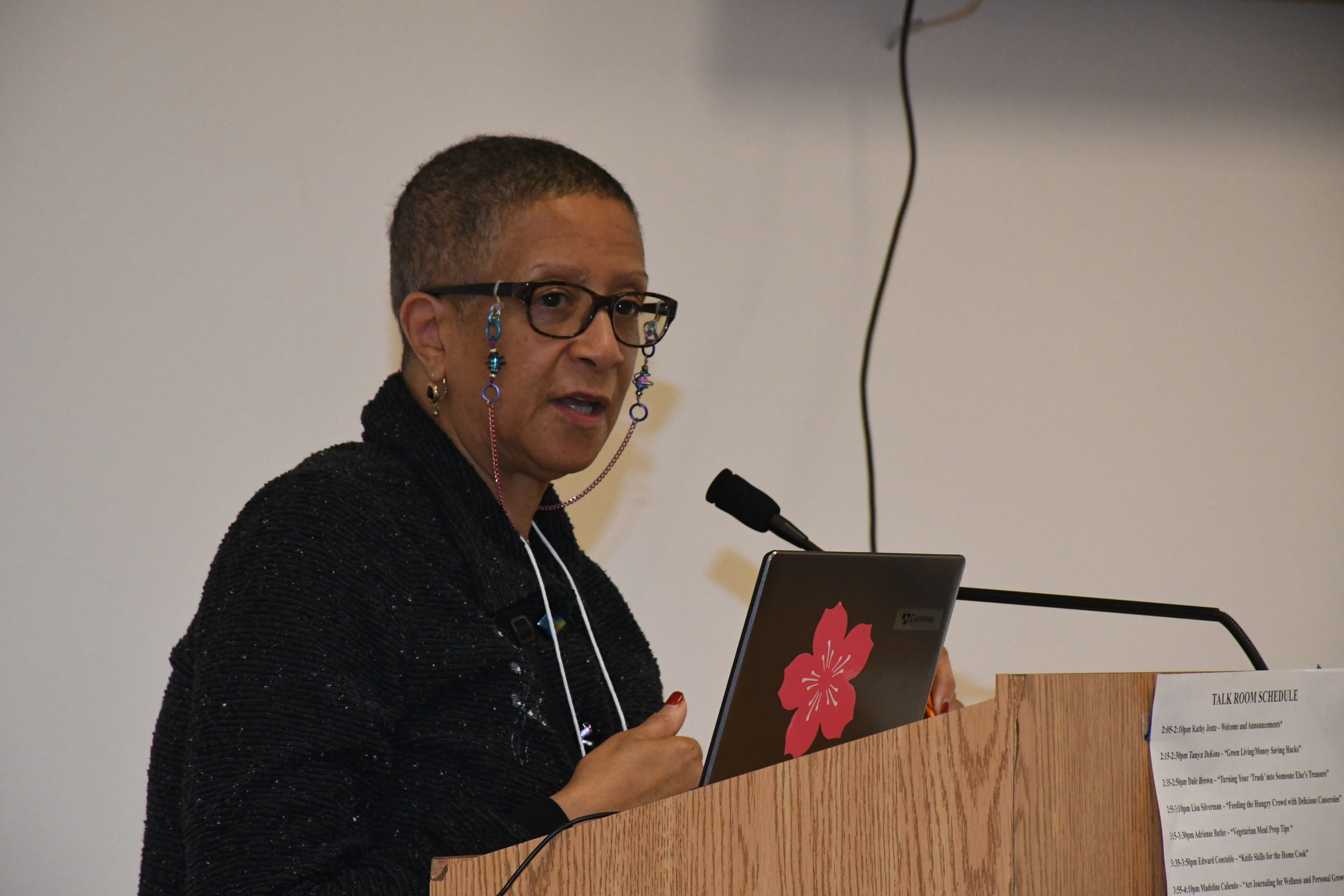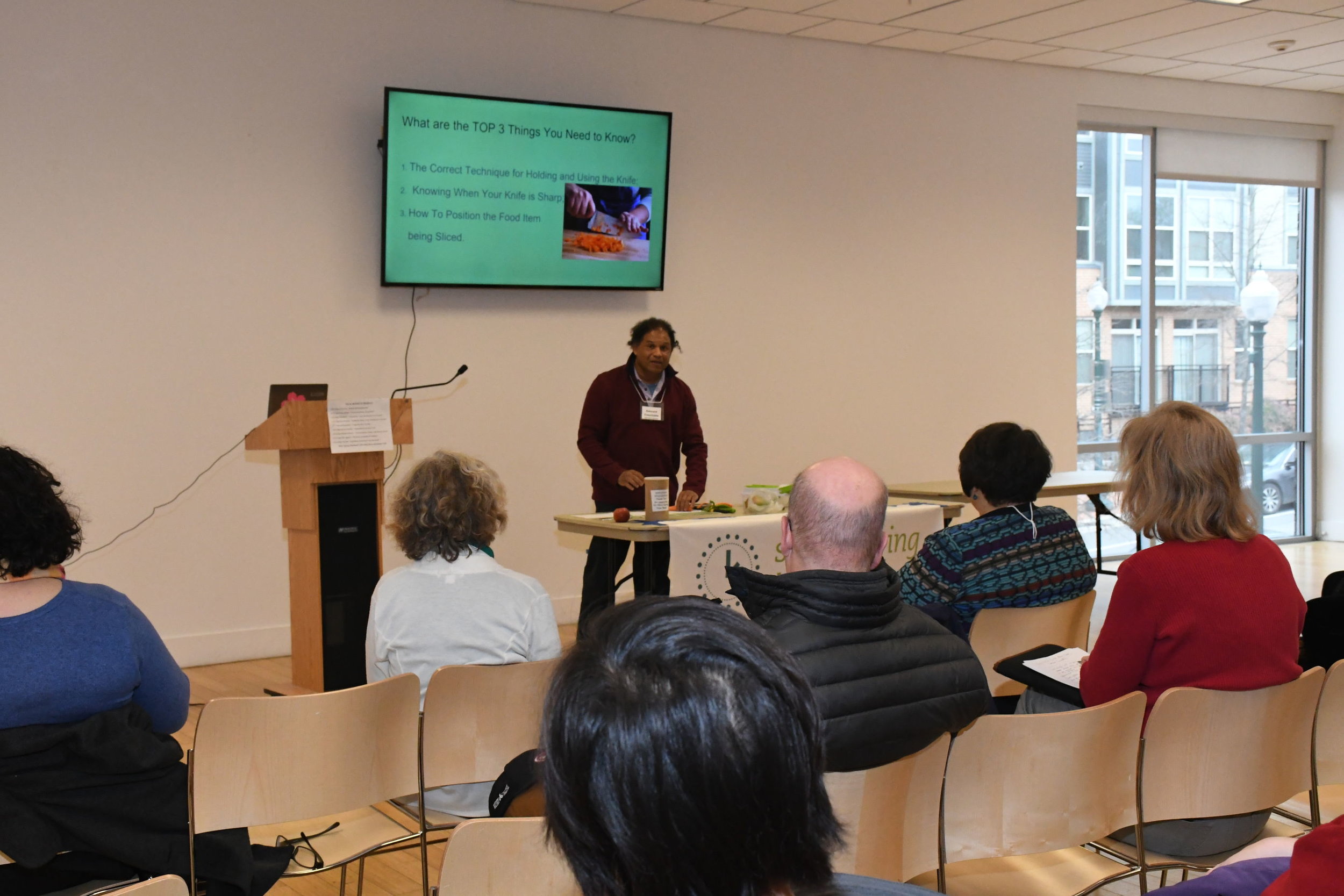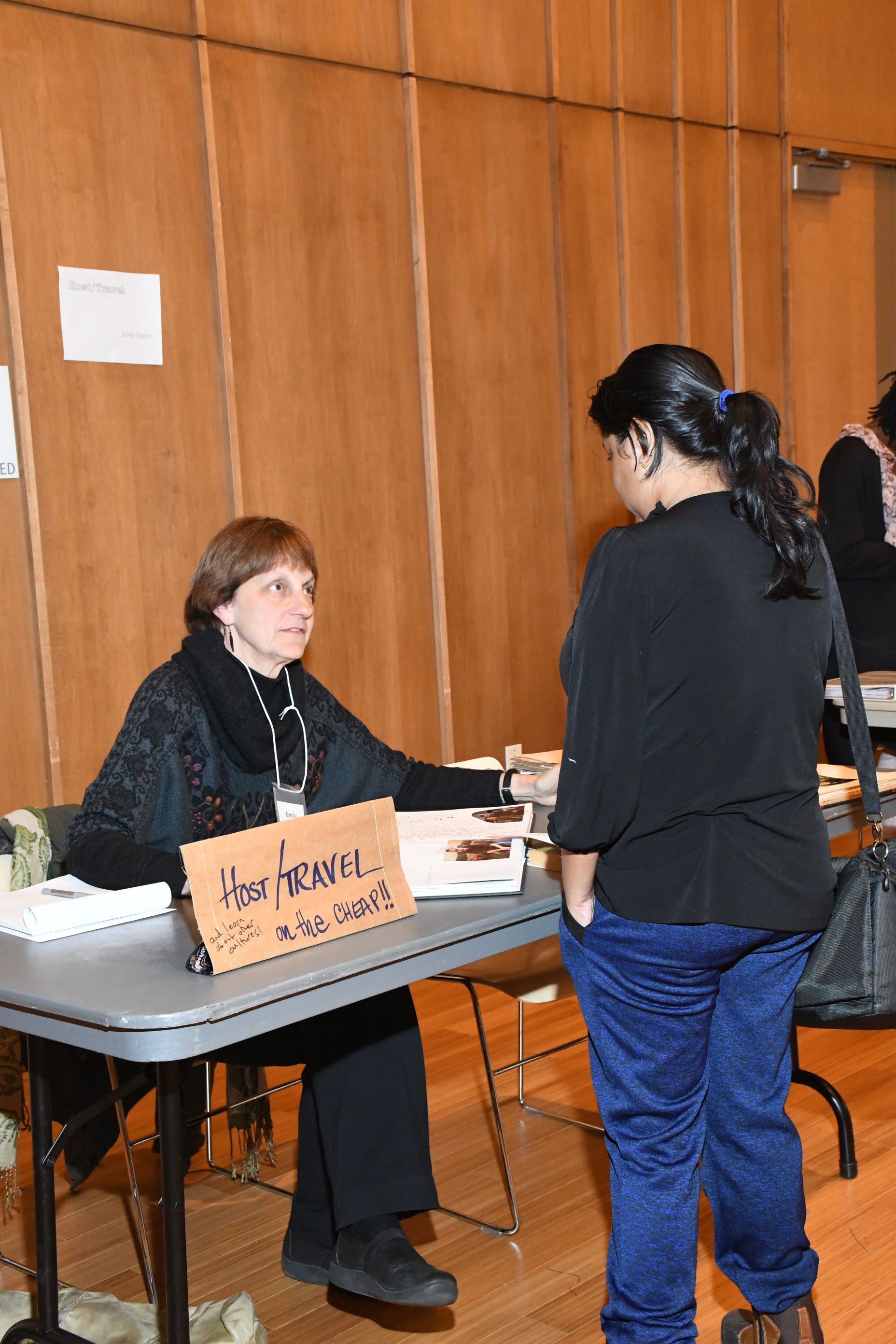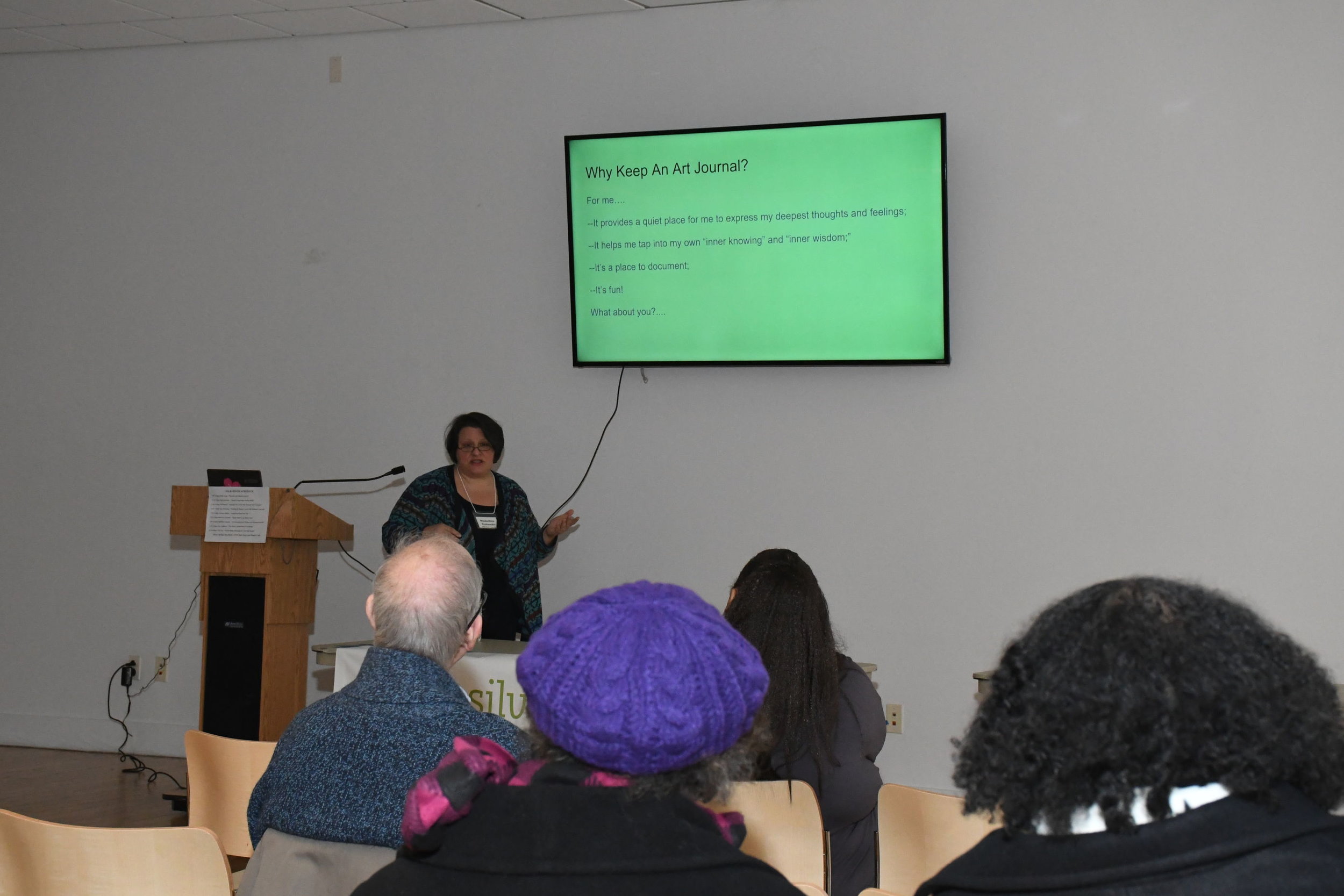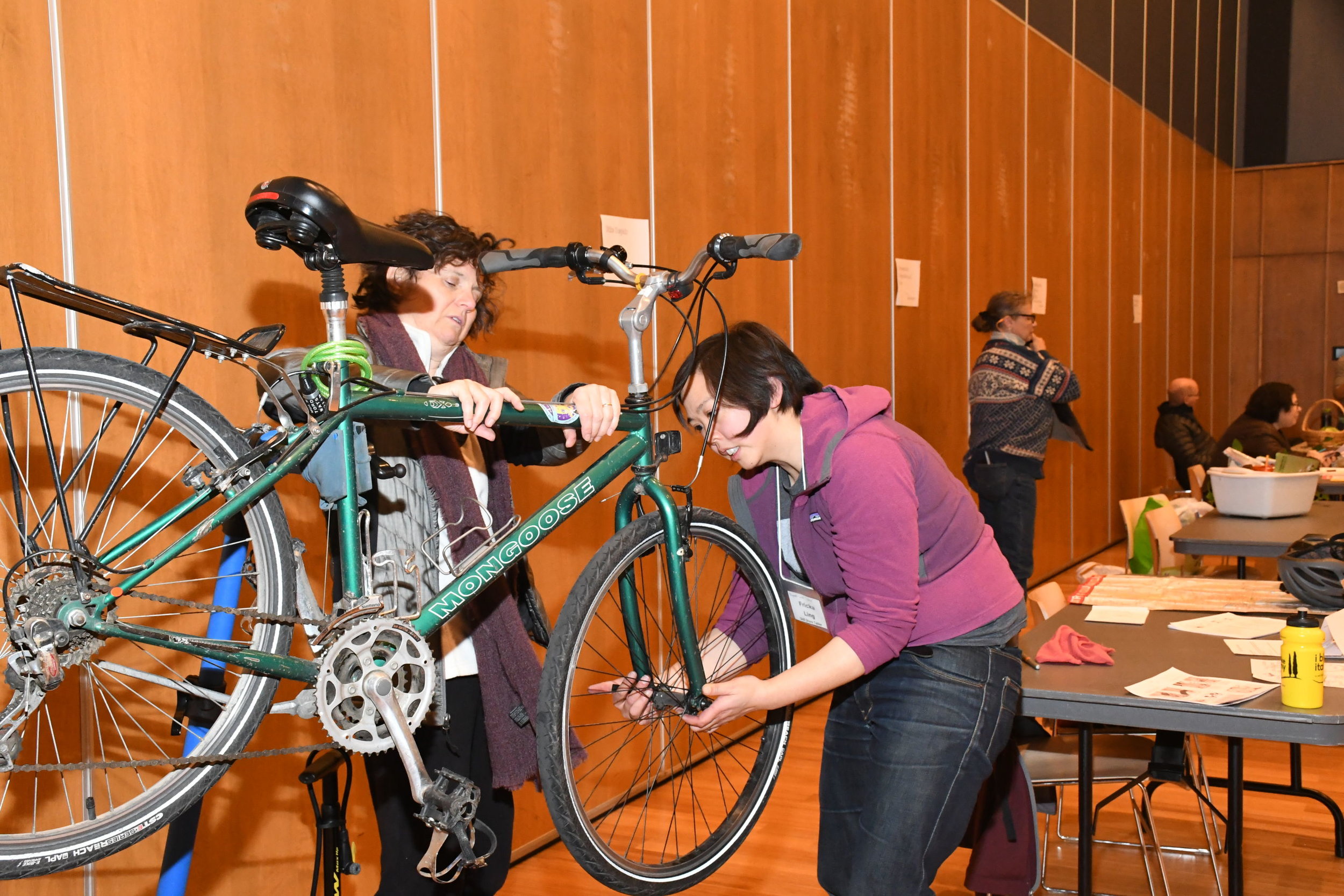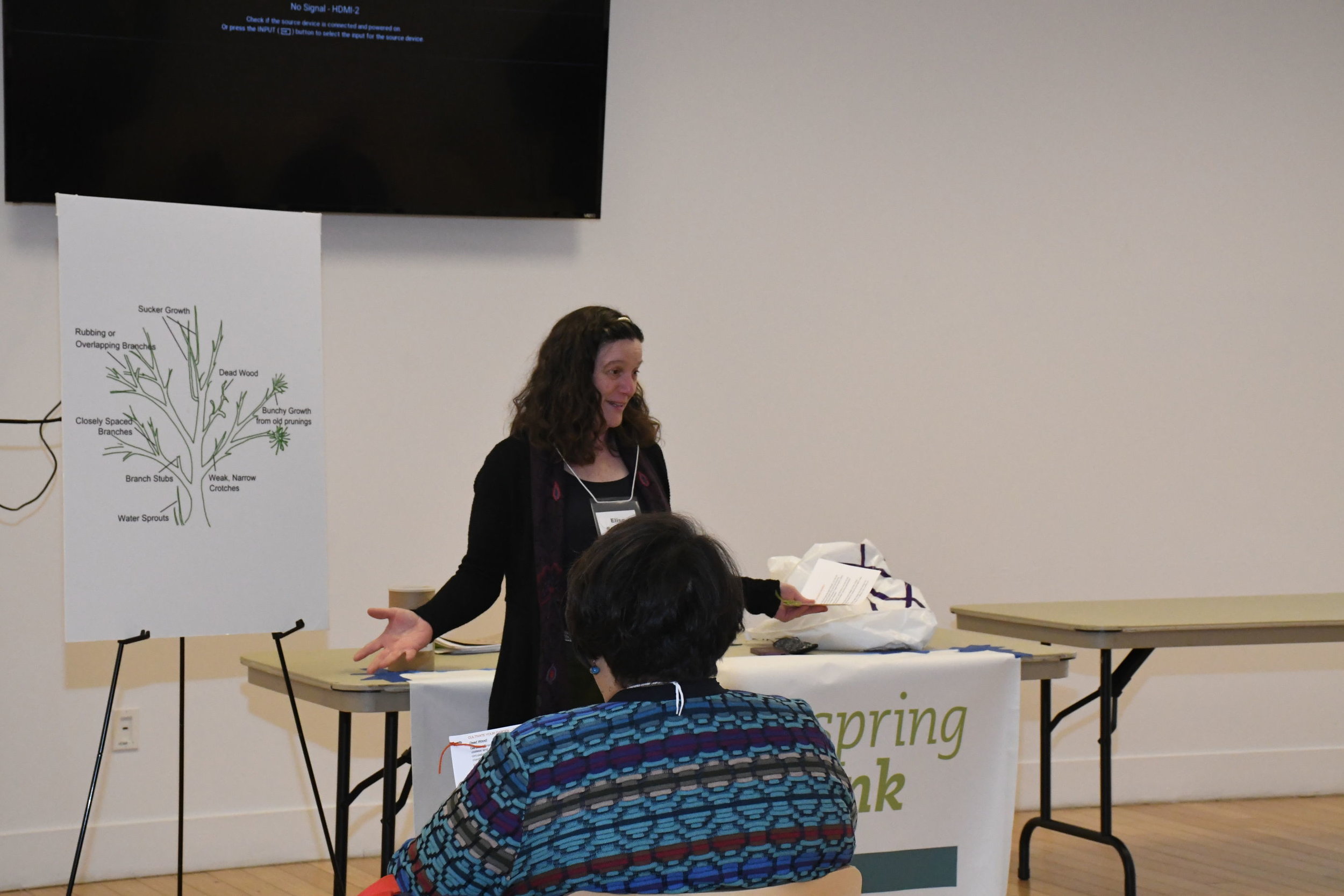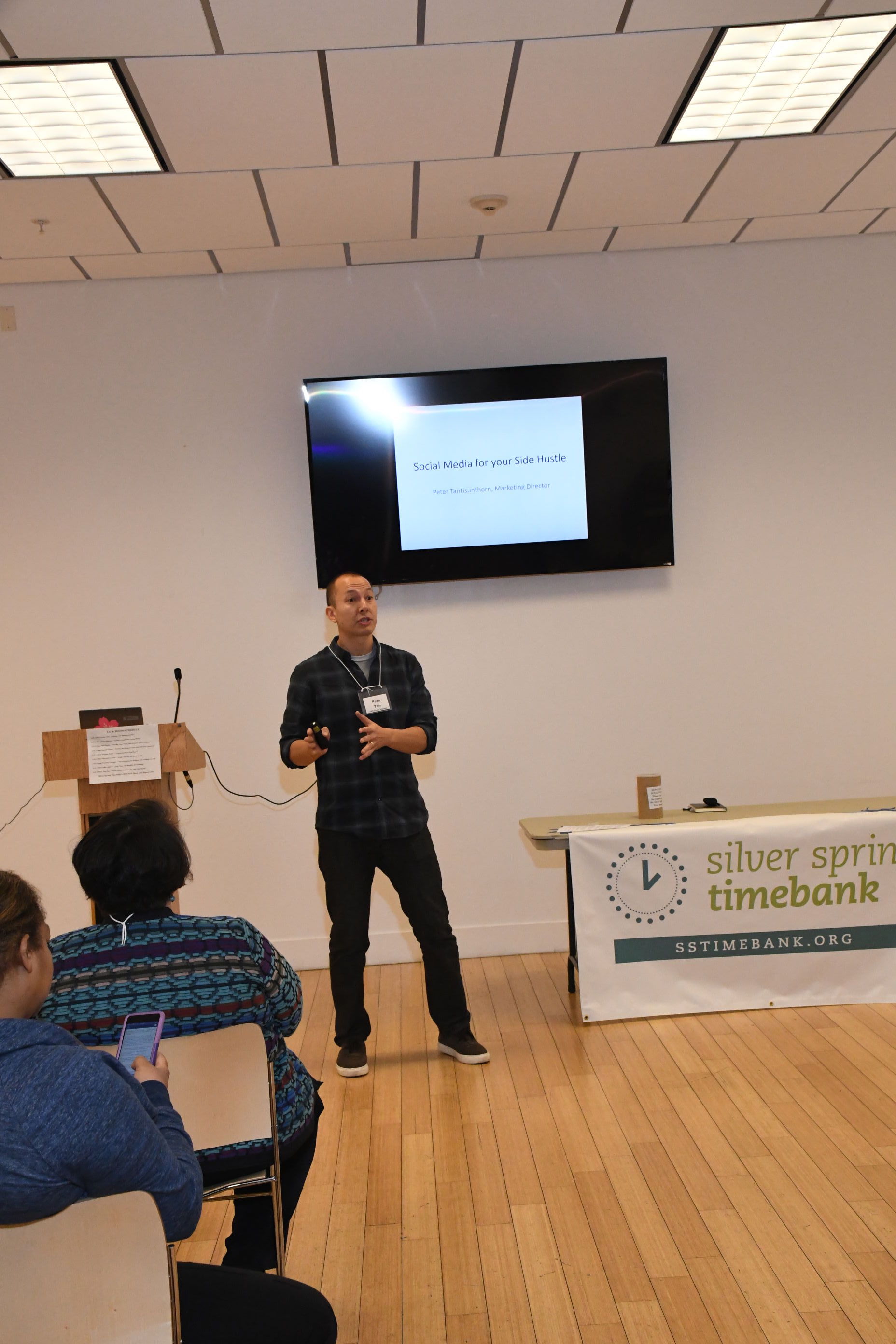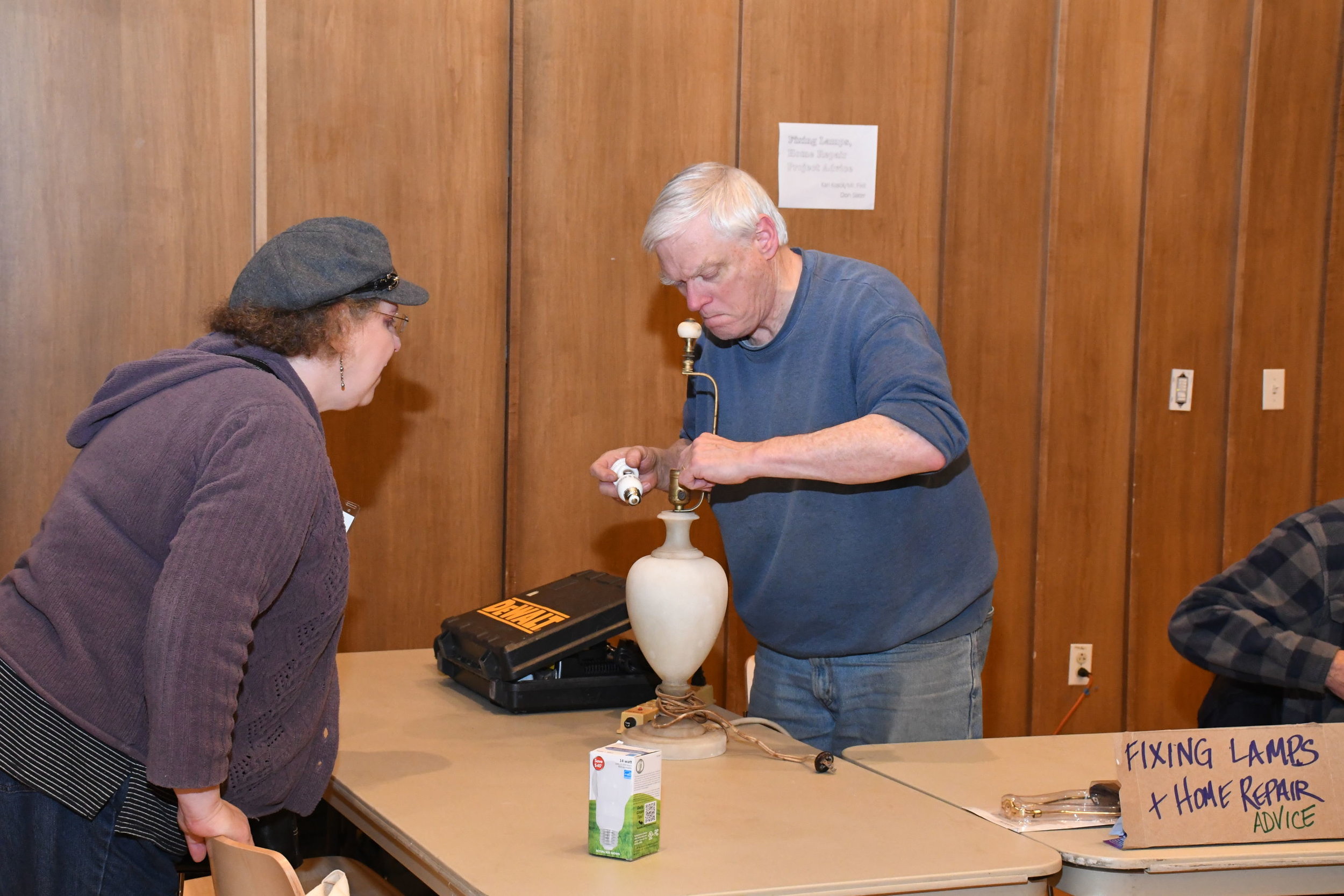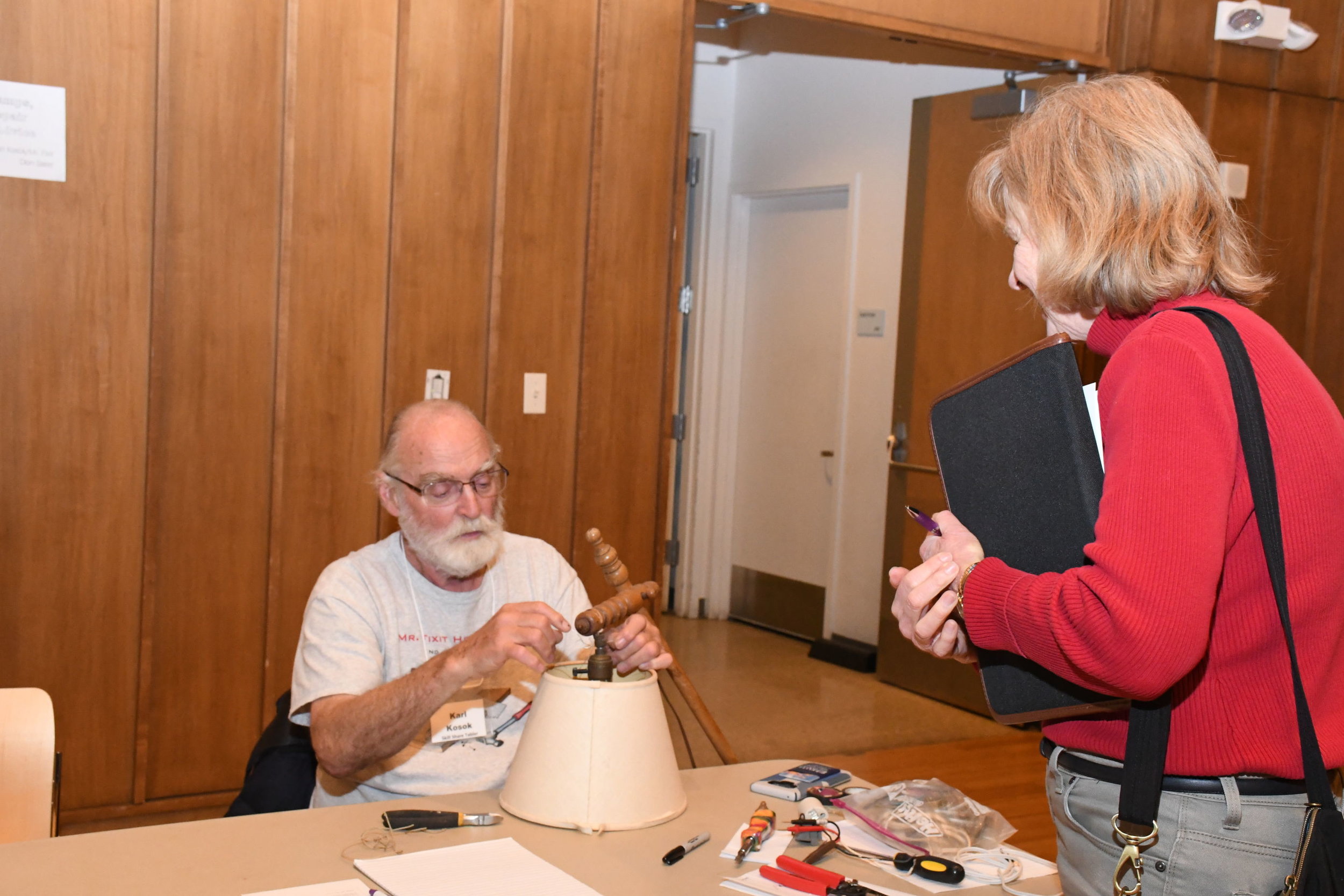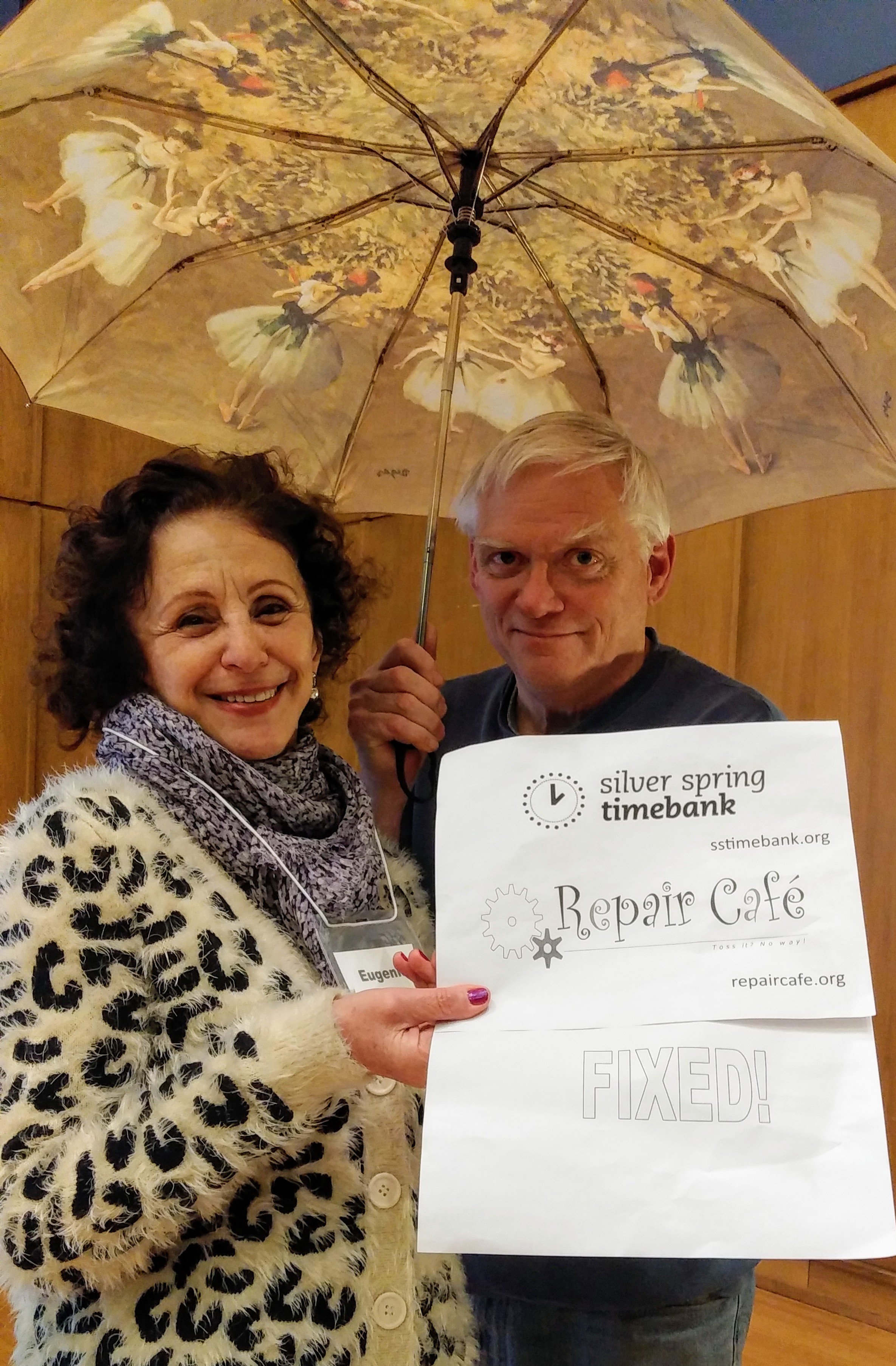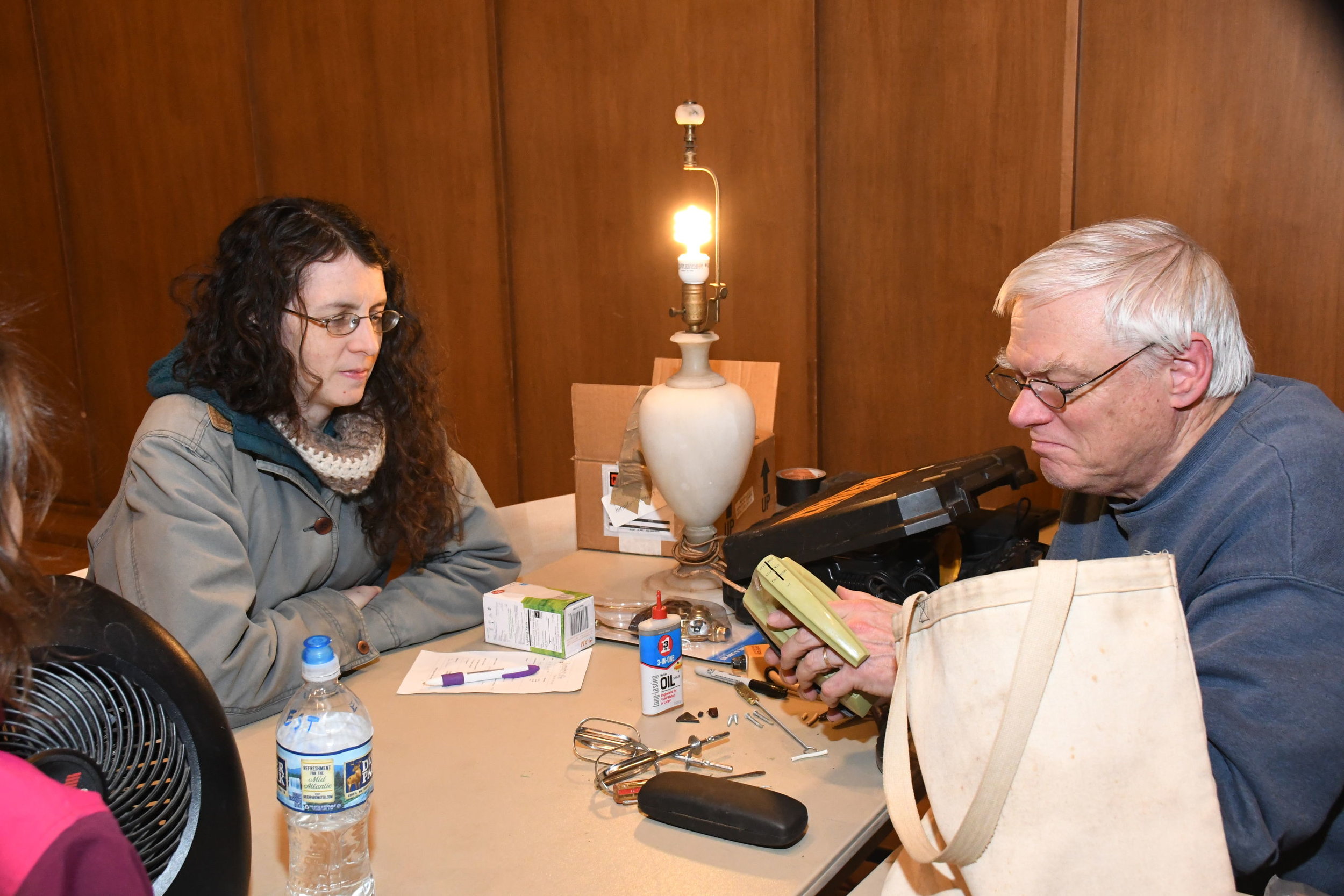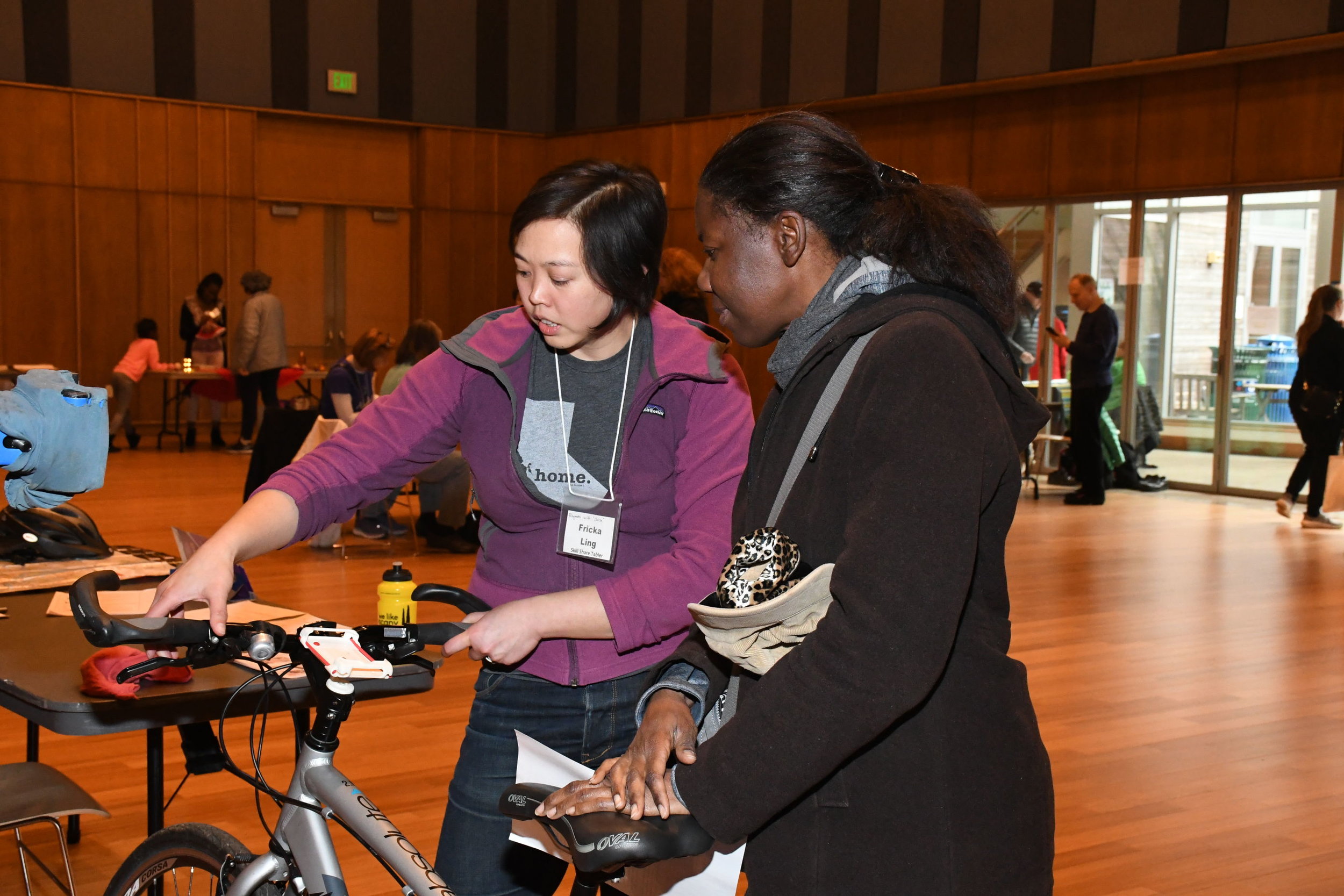Sewing and Craft Supplies Swap
/I love finding half-done projects, and I love bringing mine. It's exciting to know that someone else will finish the project and get to wear the dress. -Tanya
I found a book on drawing animals I can use with my art kids. Every six weeks, we do a different animal. -Tina
This is fabulous. I found some yarn I can use to help my mother's church. They make prayer shawls. Anyone can come and take one, for any reason. So they have to have a lot of them. -Kendra
I'm ahead of the game: I'm taking only one bag of stuff with me, but I brought two here. Also, I've managed not to take any of my own things back with me! -Eileen
I found a cake cookbook -- one cake for each state in the U.S., with the recipes and the history of each cake. I might give this to my mom, but I'll spend some time looking at it first. -Andrea
I just wanted to get rid of my stuff and not get more, but I did pick up some things for other people. I found these wooden knitting needles that my aunt likes. They're very hard to find. -Emma
I found the wherewithal to reupholster my ottoman, and I got a fabric here that will go with what I have at home -- or close enough. I also found a couple of upholstery supply items that will help me do the reupholstering. -Connie
Here are some darning eggs, but even if you don't take one, you can do your darning, using a lightbulb instead. -Mary
I found stuff for my office and for my own art, along with every other project I have EVER considered. -Donna
The fun of this starts when I go through everything at home to decide what to bring. I hope to find materials for card-making which helps me feel creative even though I'm not artistic. -Kendra
I came because I was the mule to carry my wife's silk screening and reupholstery materials she was donating. But I found the one thing I wanted -- this small pallette knife for doing my oil painting. -Joe
I'm collecting these seashells. I play with them at home. Some of these I don't even have! But I need a lot of shells so I can have fun. -Sofia
I came here looking for 1-inch elastic and a zipper. I found them right away. So now I get to look at kids' stuff. -Aisha
I found some yarn to make a baby blanket for a friend's baby. It means so much to make it yourself. When I had my daughter, I was given a home-made blanket. We got about ten others that are nice, but that one is special. I know she was thinking about us the whole time she was making it. So now I'll do that for my friend. -Olga
I am a winner: I've been thinking of making a DK Tweed sweater for a long time, and look at all the yarn I found for it! I also took some acrylic for a friend at church who makes hats for the homeless. -Mary
I'm glad someone will do something with the stuff I brought, rather than leaving it sitting in my closet. And now I'm just looking at things, hoping to find nothing to bring back to my closet! -Claire
I found this yarn to give to my mom for her hospital-baby knitting group. -Kathy
This will be very useful for me, this covered bead tray. I got three. I use them for my jewelry and other things I don't want to get dusty. I also got this Vogue pattern that I'm excited about. -Julia
The first thing I'll do is make a mess in my basement while I spread out everything out and go through it. I have some really nice goodies here. I make hats from felt, and I'll make my own felt from this yarn. -Pat
I'm hearing a lot of people talking about the psychological and other benefits of these swaps: It takes such a load off, to clear these things out and know that they're going to be used by someone else. Plus there's the charge people get from bringing home something new to them. And I'm always glad to see that the swap attracts people from all different socioeconomic levels in the community. And then there's CREATE Arts Center which will get all the materials that people haven't taken. This is how we can help those served by another group while also making that group more visible in the community through our event. -Jonathan


